Date: 1 May 2024 / League: Polish fifth tier
Final Score: 1-1 / Attendance: 1,300
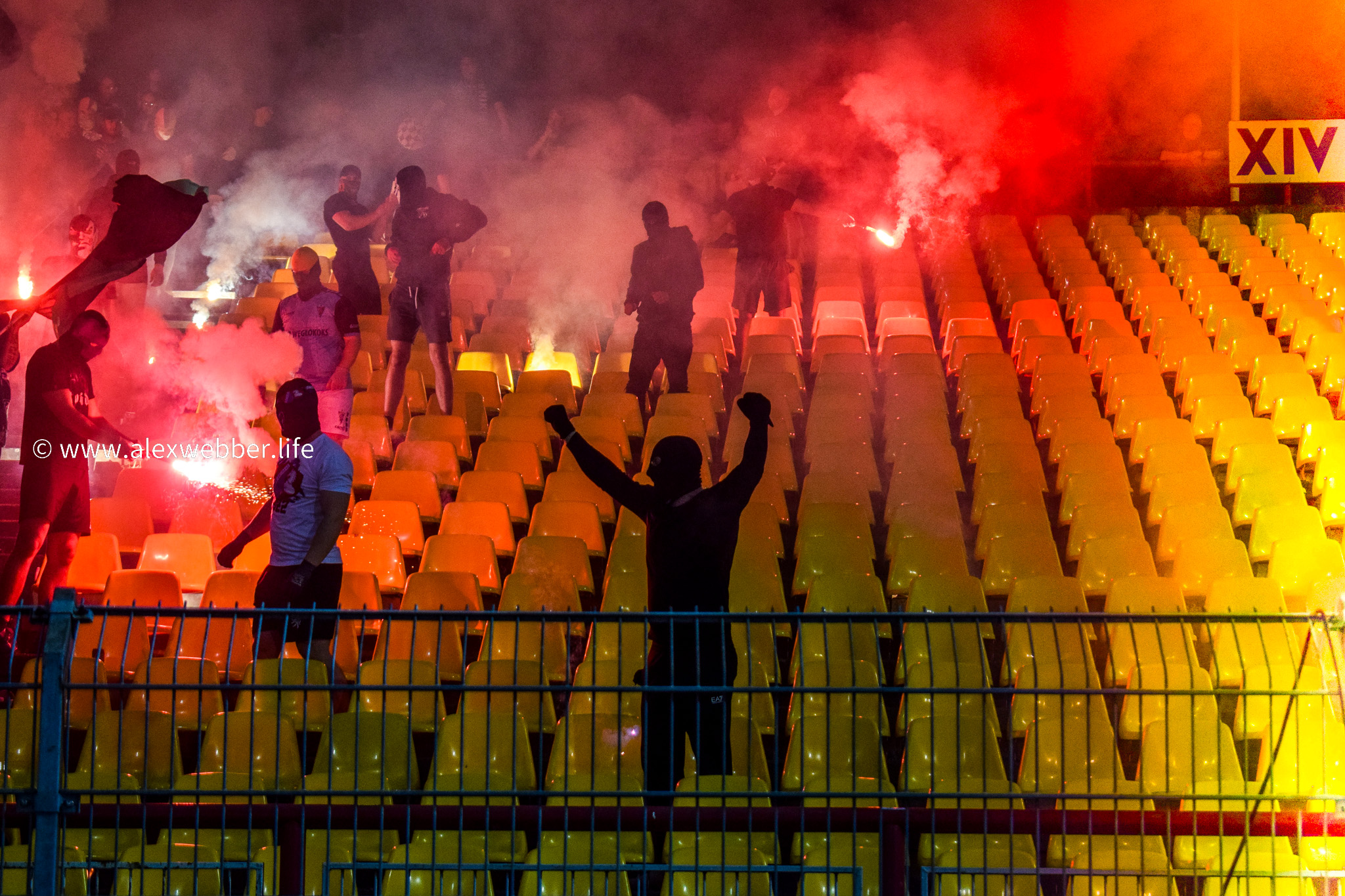
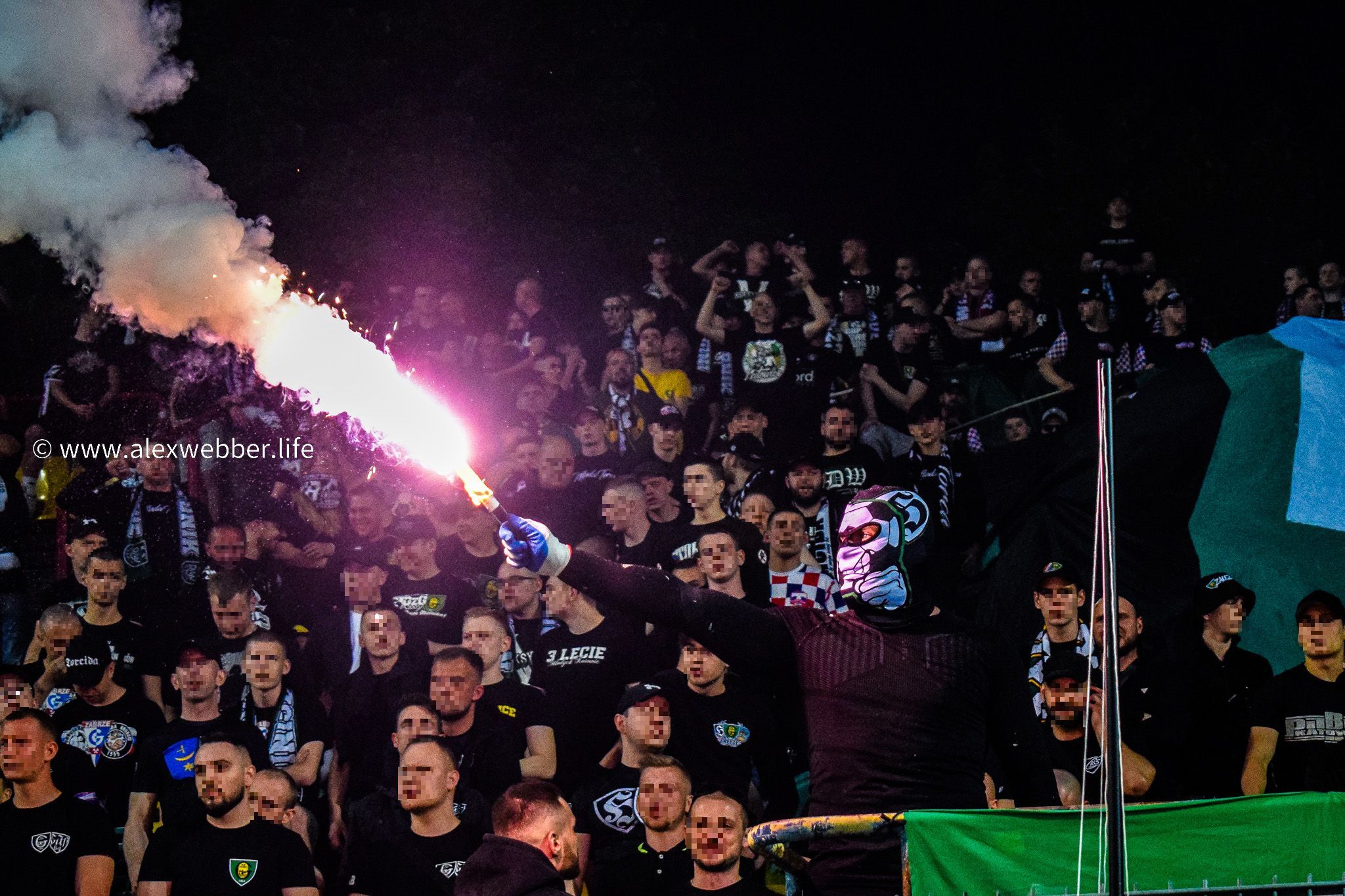

This hobby can sometimes grind you down – in fact, I think this football lark isn’t so much a hobby as it is a form of madness. Take this match as an example. Leaving home at 10 a.m., a combination of late trains, missed connections and general tomfoolery meant I didn’t return back until 6 a.m. the following day. Stepping through the door, I felt like I’d travelled to Mars and back. But was it worth it? Of course it bloody well was…
Stadium
Rybnik is, first and foremost, a speedway town, and it’s in the speedway stadium that the football side play. Completed in 1939, six-years later the pitch was used as a site of execution – according to the local newspaper, over 800 prisoners, presumably Jews, were shot here on one of the Nazi death marches after Auschwitz had been ‘evacuated’ as the camp’s liberation neared.
From what I could see, no memorial exists commemorating this, though on that I might be wrong. There are, however, numerous bits and pieces marking the city’s speedway triumphs. Twelve times Polish champions, the team’s greatest veterans are celebrated by way of a number of plaques that line the back wall of the main grandstand.
Horseshoed in its shape, the overwhelming majority of this 10,000-seater facility has been left open to the elements barring, that is, a cantilevered roof positioned high above a slim slither of VIP seating. Next to this sits an away section fortified by two surrounding fences that must be nearly three metres in height. Looking at it all, it feels a bit of a throwback: dusty and a little retro, right down to the typography used to announce the stadium’s name above the main entrance. Projects to modernise it have been mooted, but in the meantime it’s a great tick to add if you’re a stadium bed-hopper.
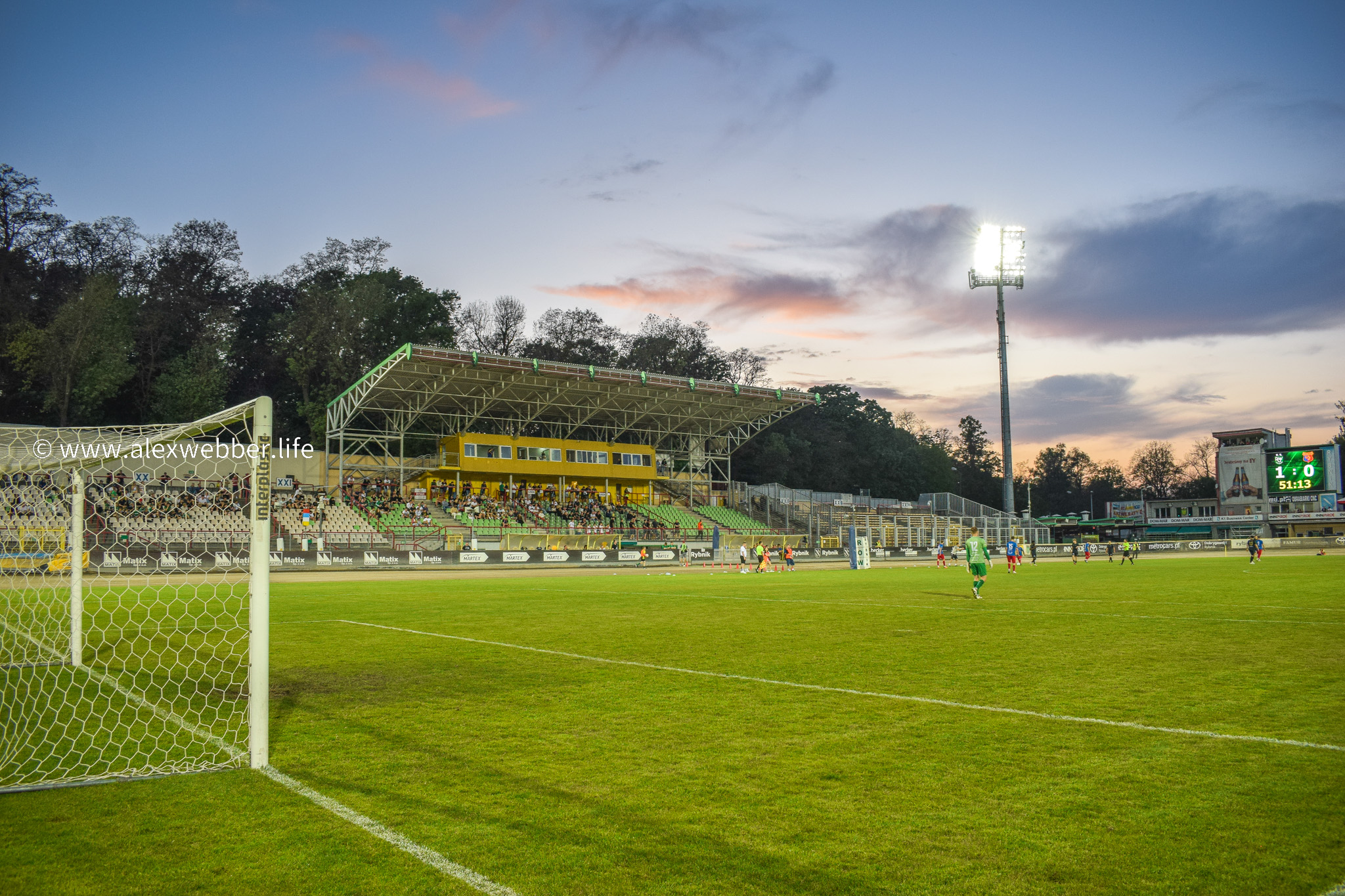


The Football Club
Founded in 1964, the football side spent much of the 70s in the top-flight and finished runners-up in the 1975 Cup Final (they lost on penalties). Over the course of this decade, they qualified for the Intertoto Cup four times, entertaining the likes of Borussia Dortmund, St. Gallen, Sturm Graz and AZ Alkmaar.
Unfortunately for their fans, it’s been largely downhill ever since – dissolved in the 1990s, the club were later reformed and even made it to the second step of football around a decade back. Currently, mind you, they find themselves in the equivalent of the fifth division and struggling to keep their heads above the water. Beset by financial problems, the future looks dicey.

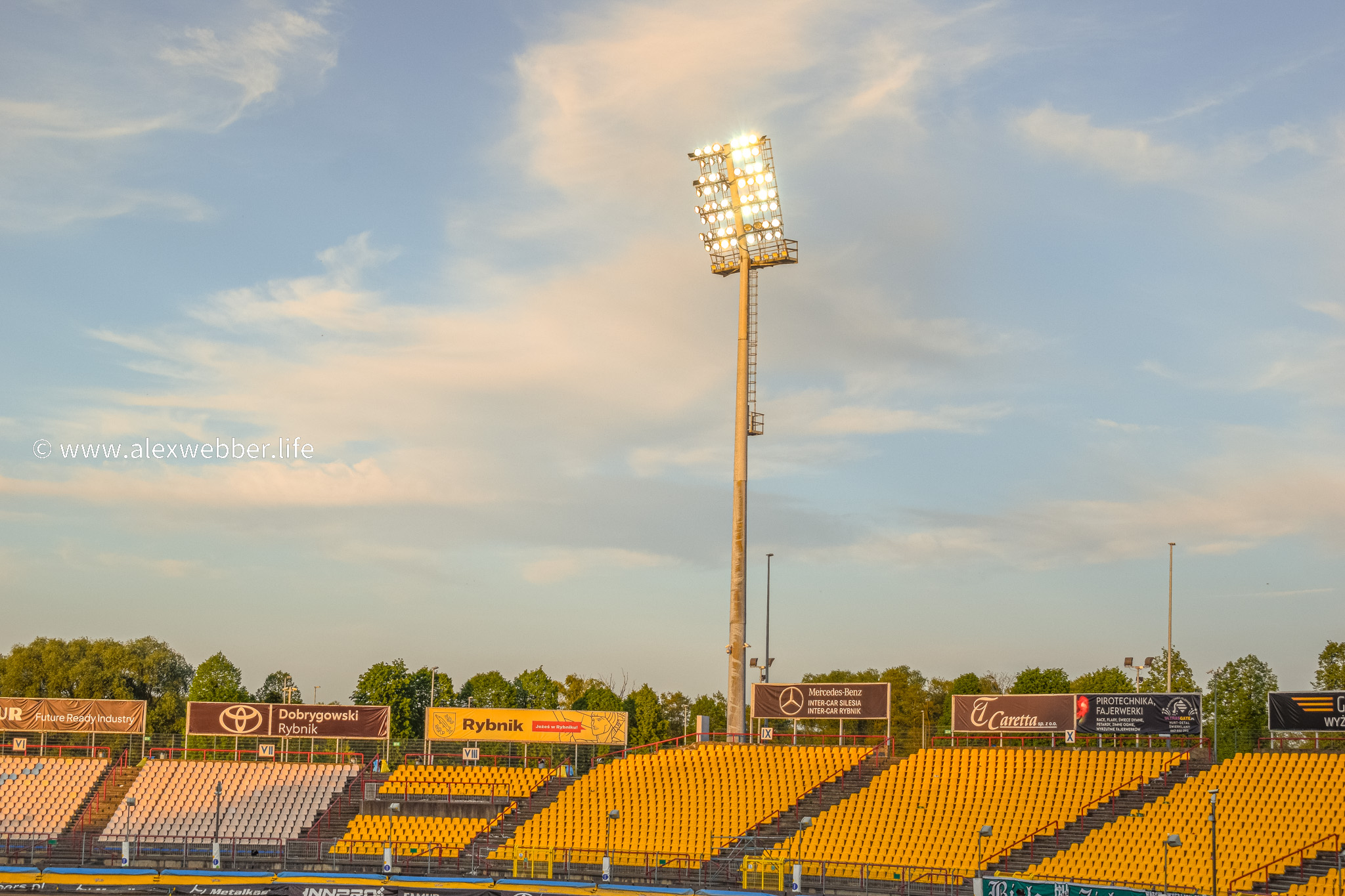
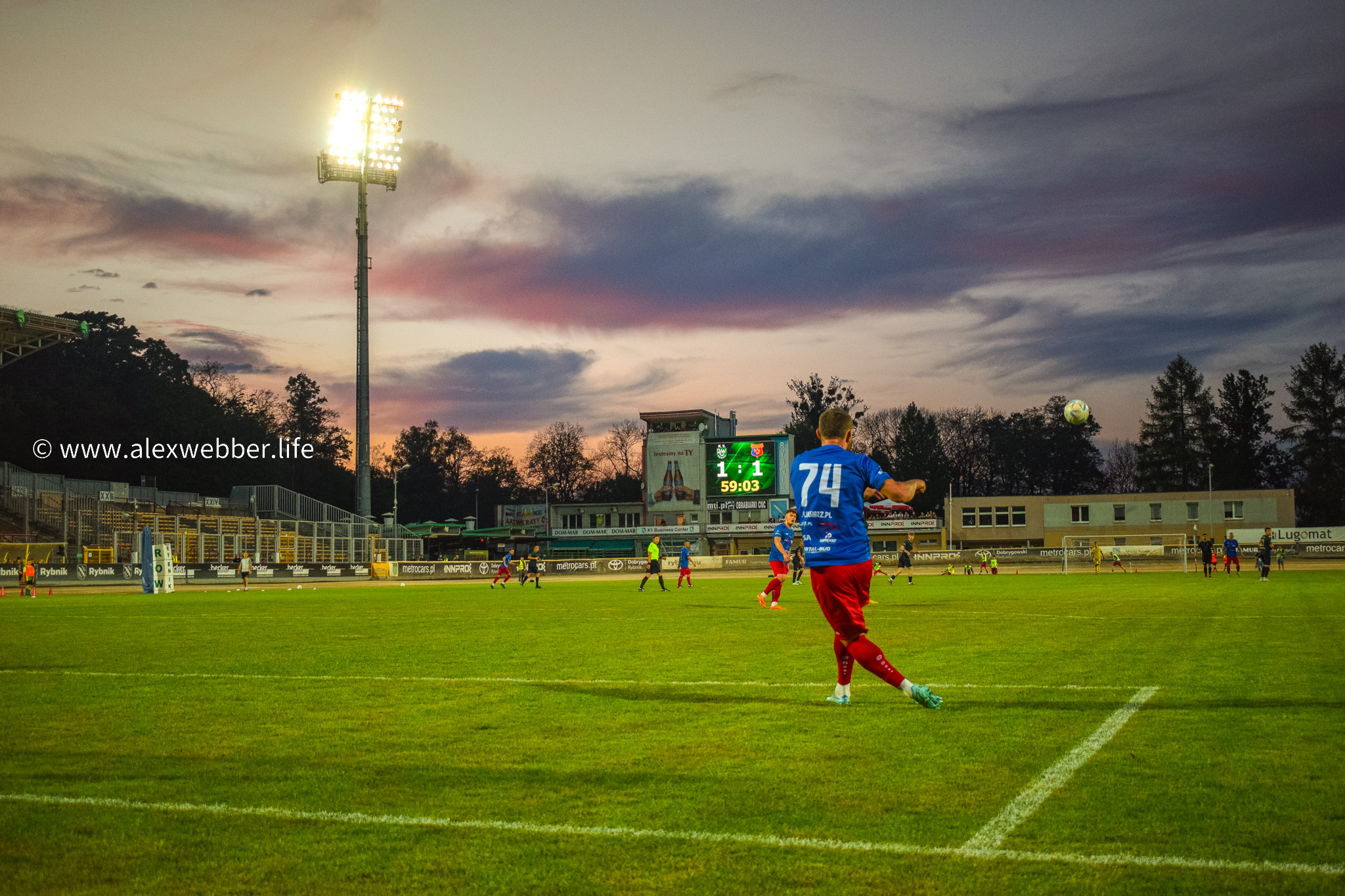
Experience
I don’t think another region of Poland does derbies quite like Silesia, and that’s as true of the lower league offerings as it is the more high-profile fixtures. Fifth-tier this might have been, but the hype going around ROW’s meeting with Odra Wodzislaw Slaski (for previous report, CLICK ME!) made this a match I couldn’t miss.
The away fans, alas, did. Granted 200 tickets for the match, they showed up with more than their allocation. Worse, they’d failed to submit a list of names of those planning to attend. Polish authorities don’t need many reasons to refuse away supporters entry, and here Odra had handed the police a ready-made excuse. F**k and double f**k!
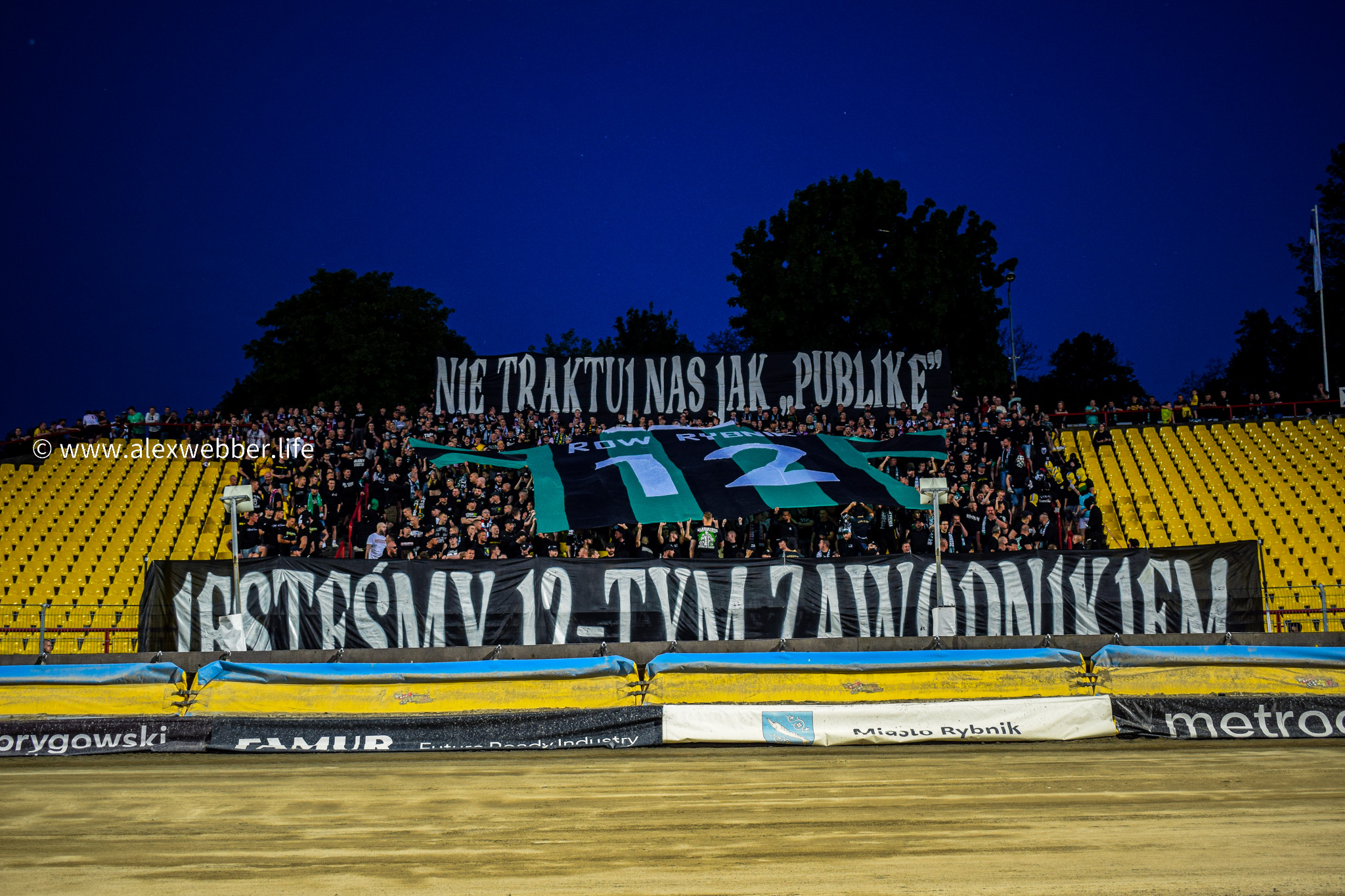
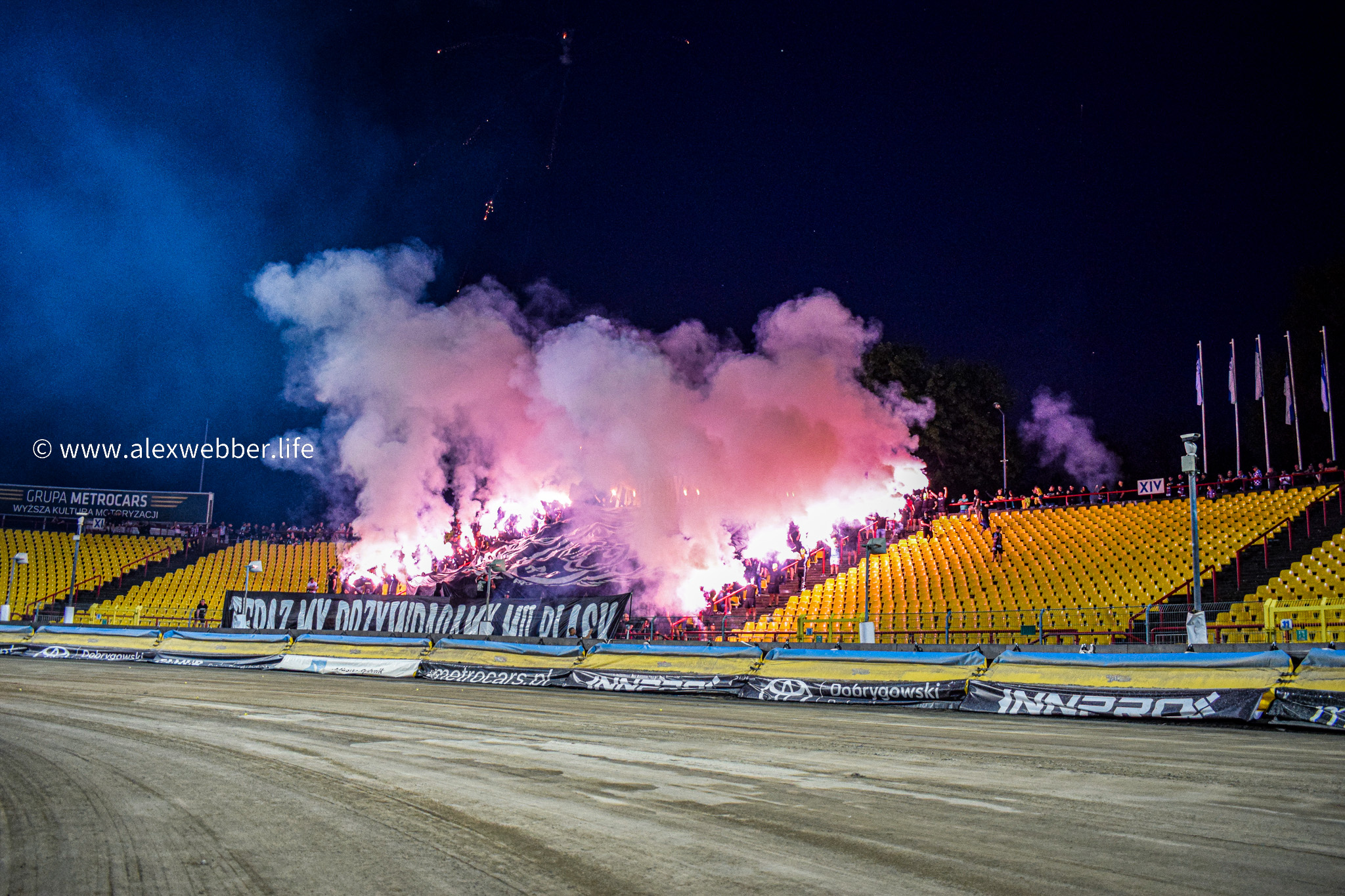
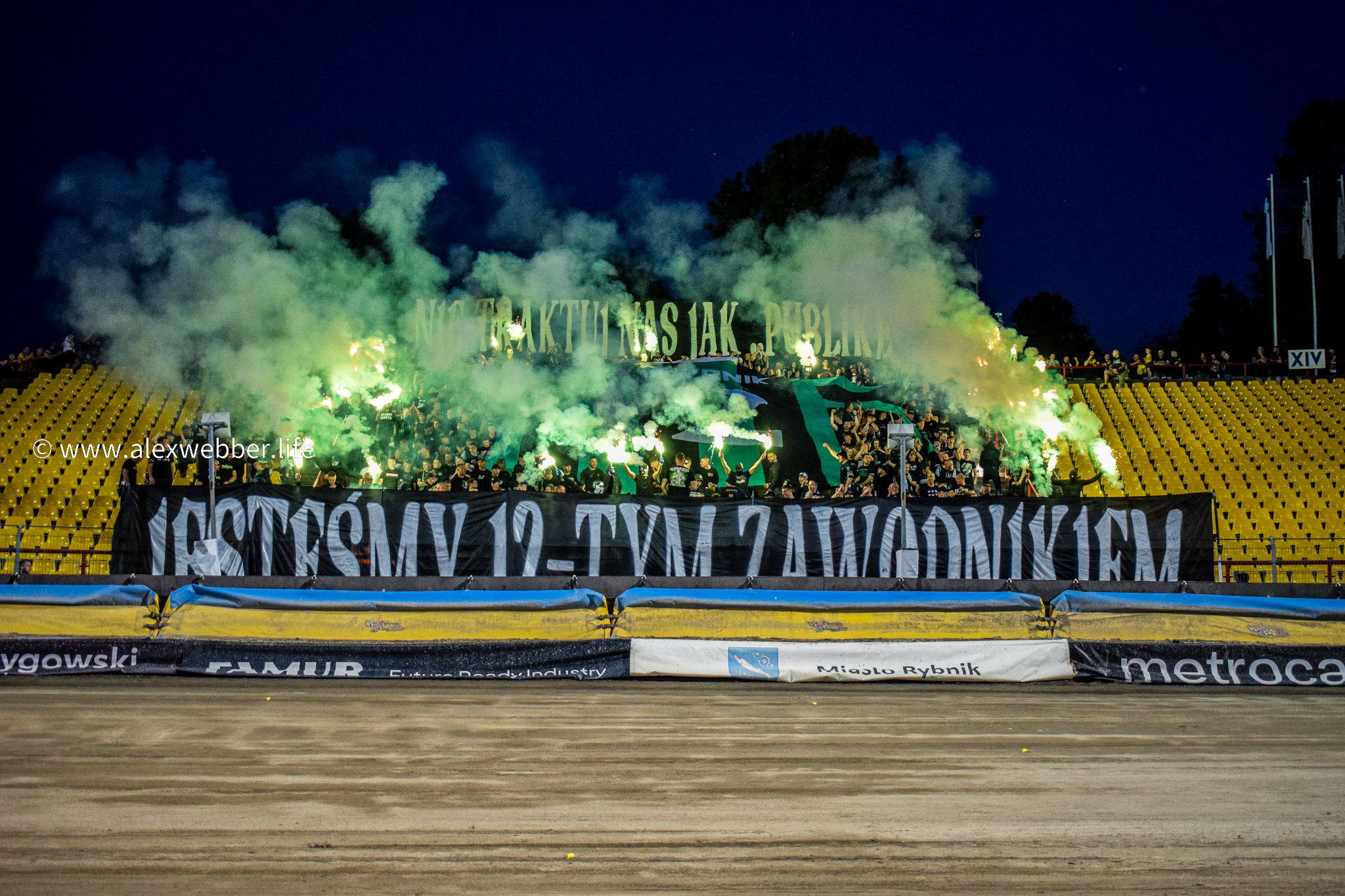
A derby loses much of its power without away fans in the house, so it’s an absolute credit to ROW that the home lot made this such a memorable game. True, for the first half us fan photographers that had turned up cut a dejected figure. You’d have seen us sloping around the pitch cursing and seething and spitting blue murder. “Even a world class pyro show won’t save this game,” I told a mate.
I couldn’t have been more wrong. As dusk settled over the ground, the home fans – amply boosted by supporters of allied clubs such as GKS Katowice, Gornik Zabrze and Wisloka Debica – truly found their voice. Then, on seventy minutes, out came the pyro.
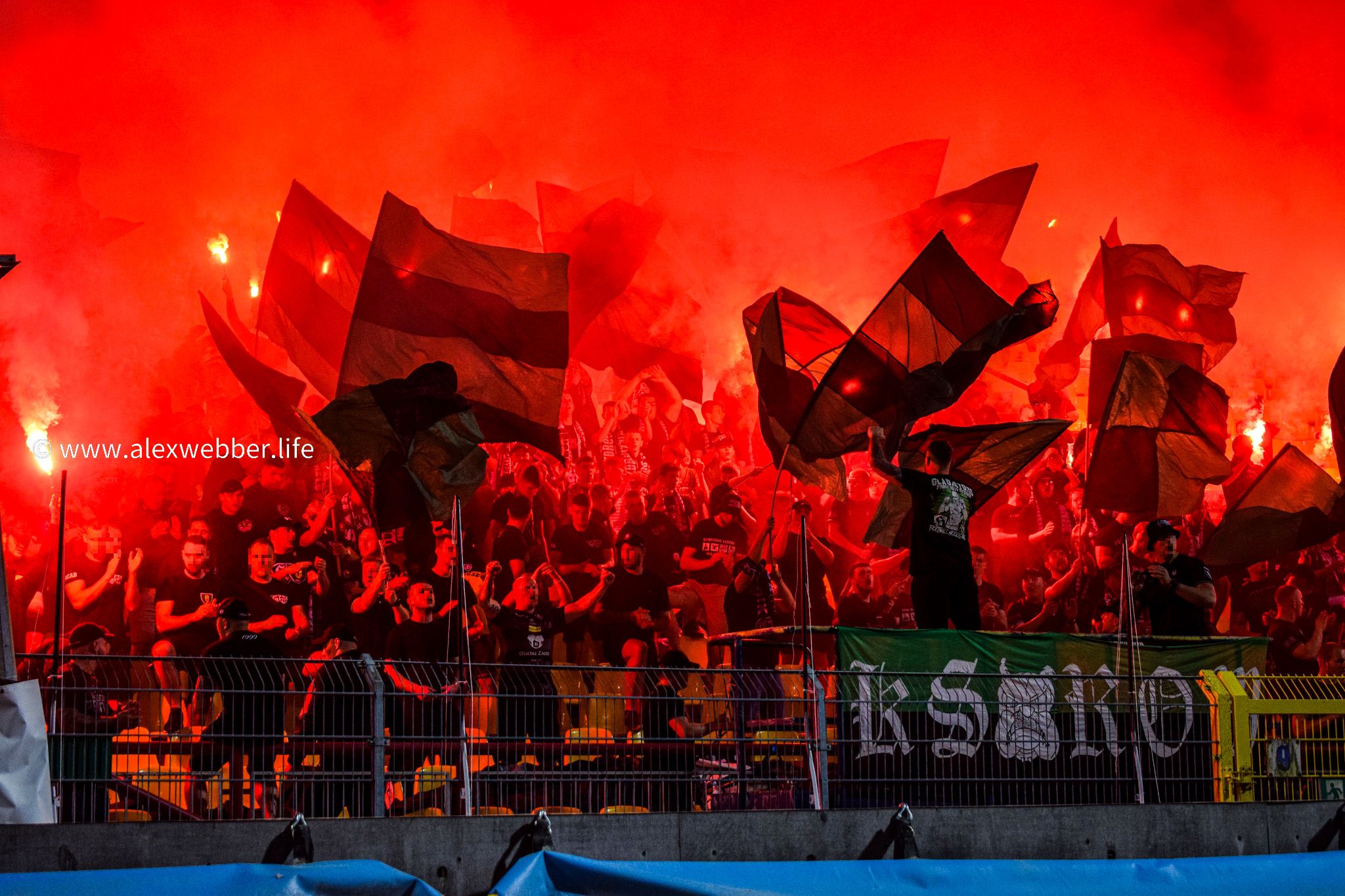
Eschewing the more over-thought tifo arrangements now common in the higher leagues, there was something brilliantly old fashioned about the ensuing show. Nothing too complex here, just a couple of banner drops and a flag show interspersed by three waves of hardcore pyro. Lasting pretty much till the final whistle, this pulsating climax was simply breath-taking to watch.
Irritated as I remain by Odra’s failure to enter, this match had been well worth the effort. Capped by a guest appearance at full-time by local hero Lucas Podolski (I’d walked past him countless times during the game and failed to recognise him), the second-half had been a barnstorming experience that left the hair standing on end. Played to a reduced capacity that had been set to 1,300, the acres of empty seats mattered not – this was one to remember.

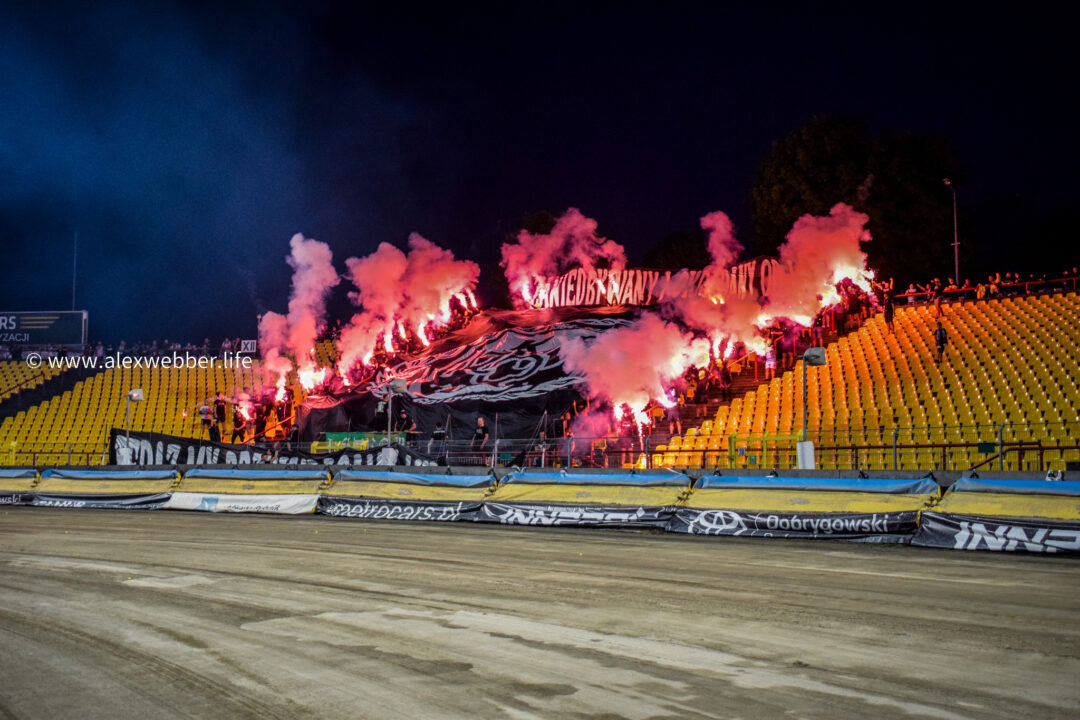












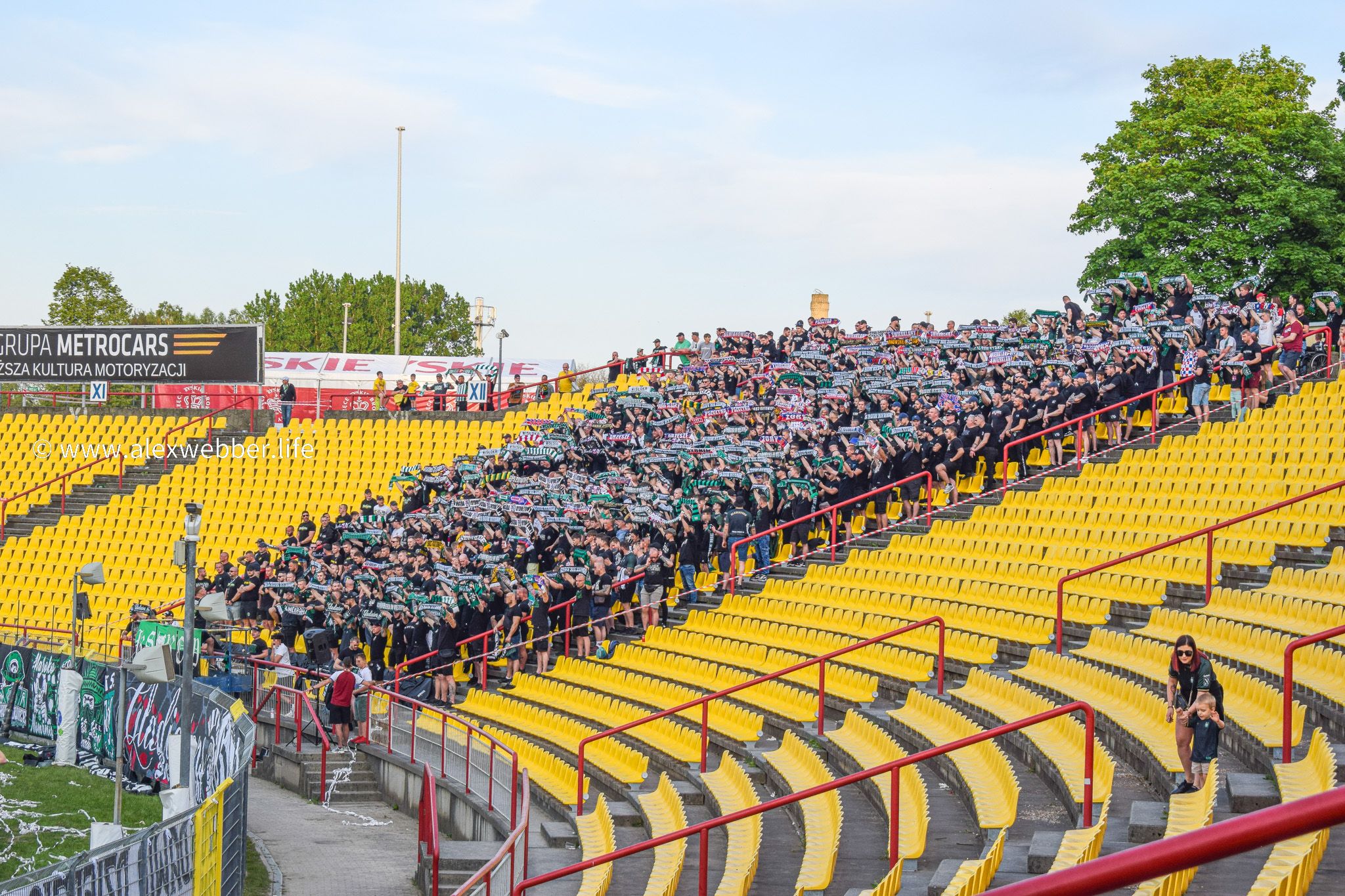




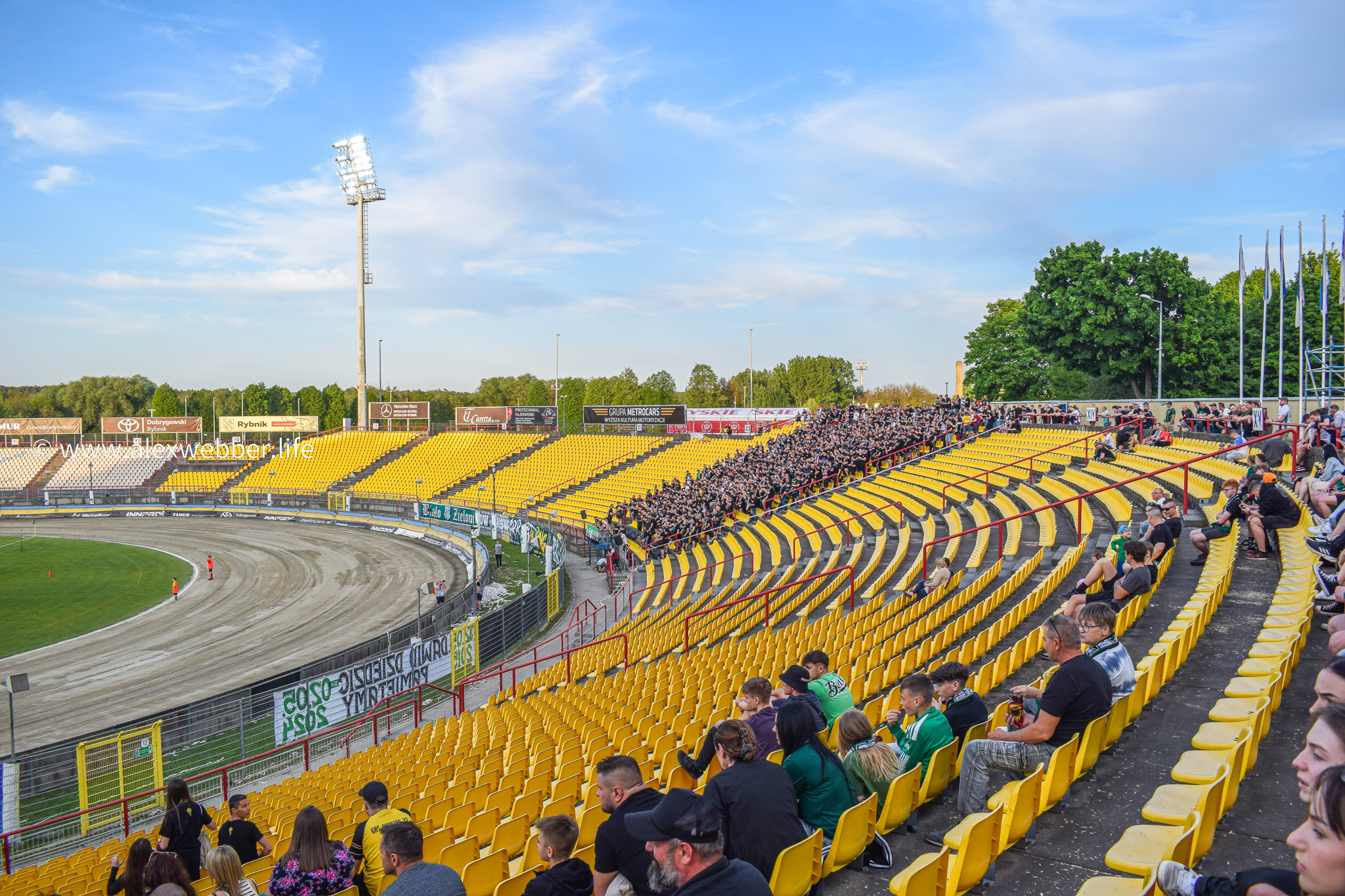


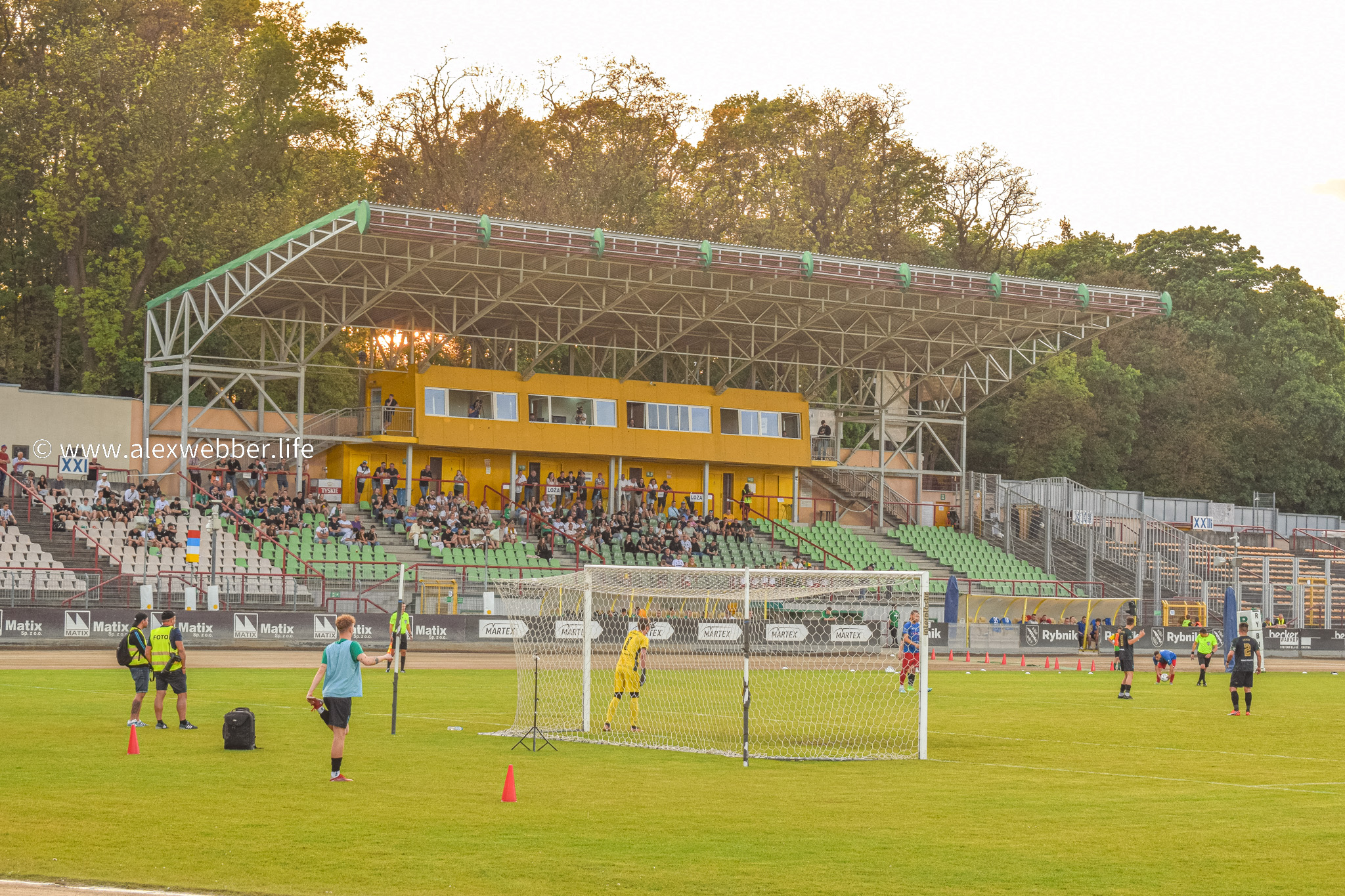

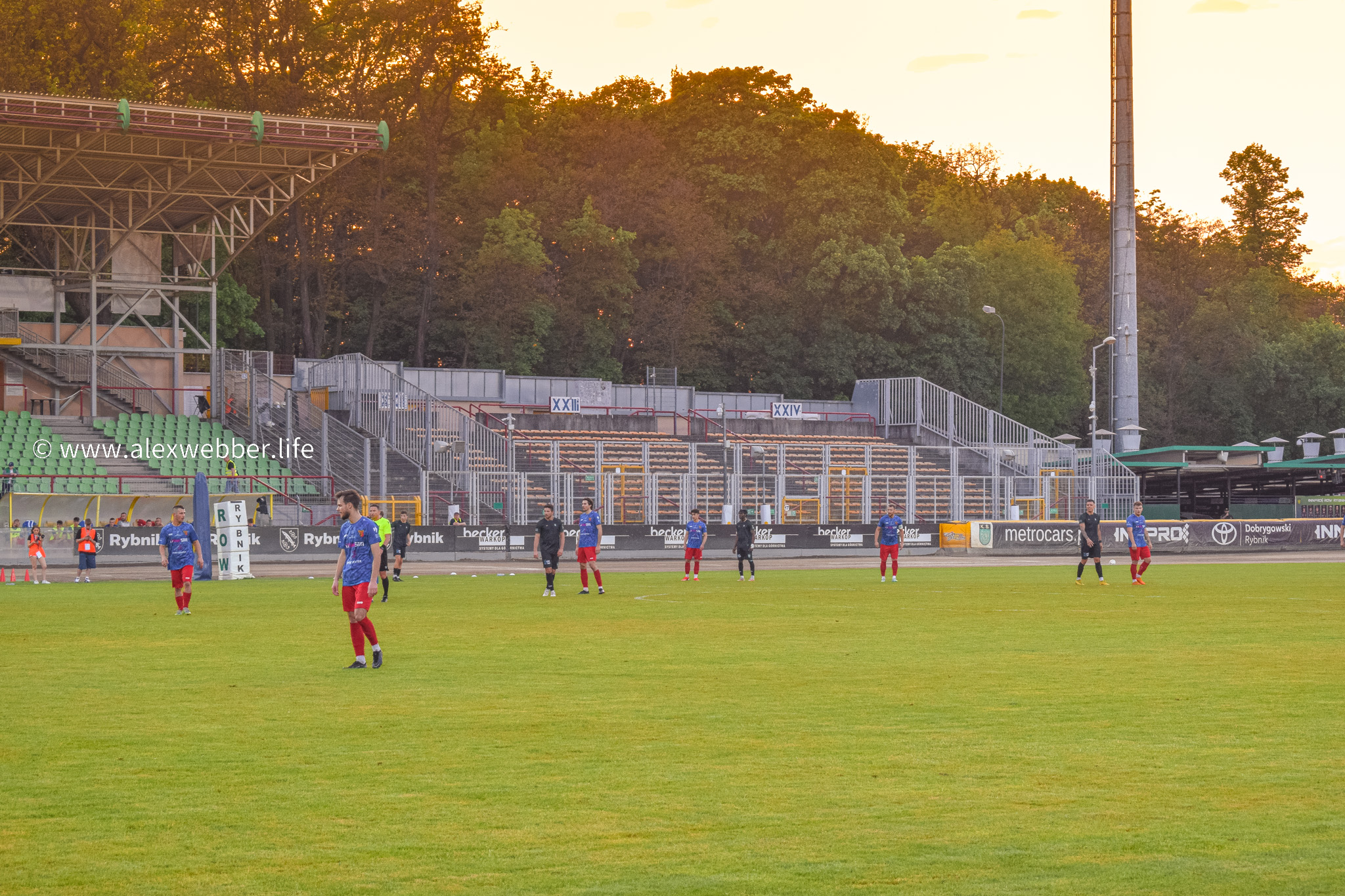

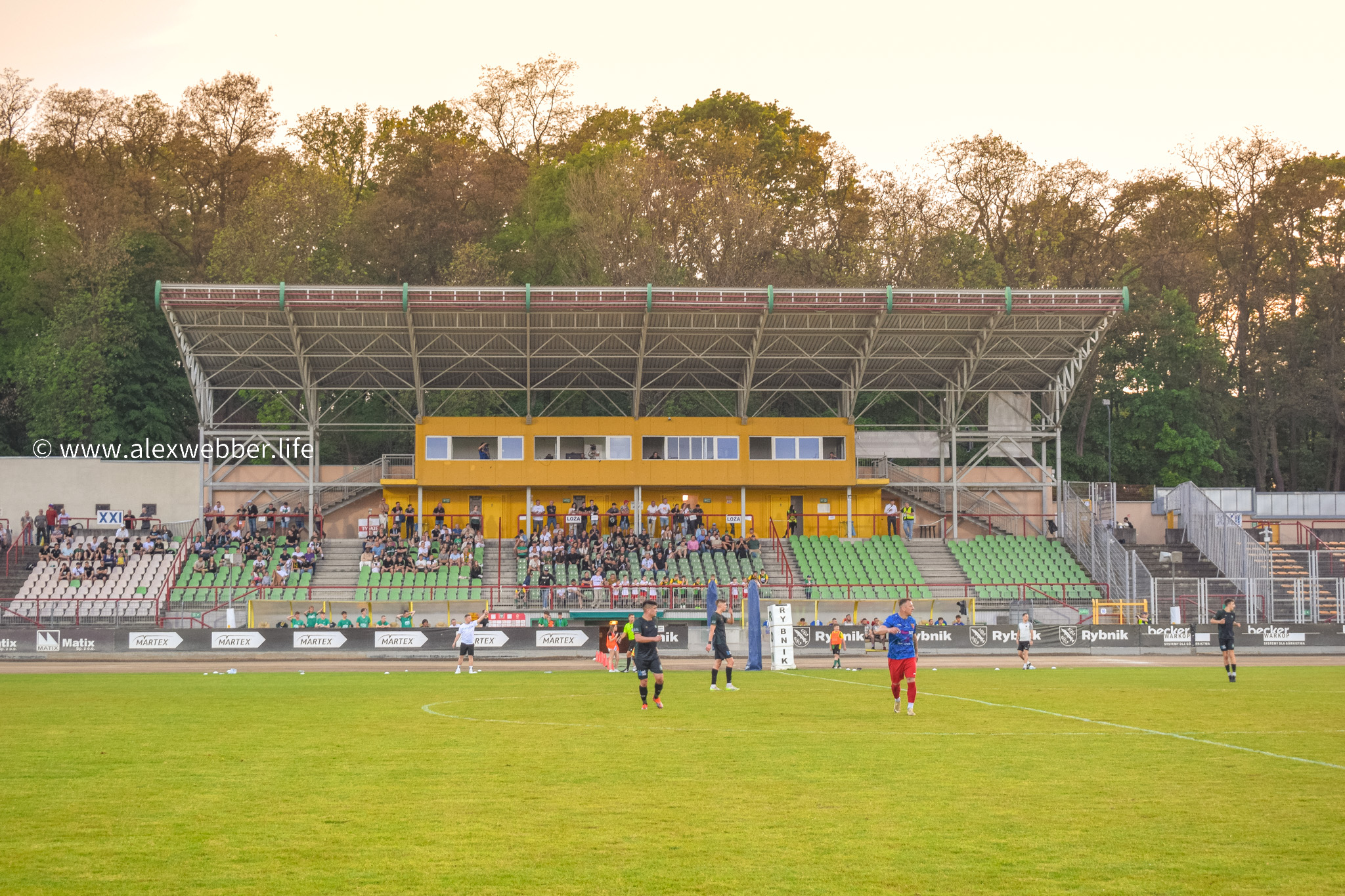
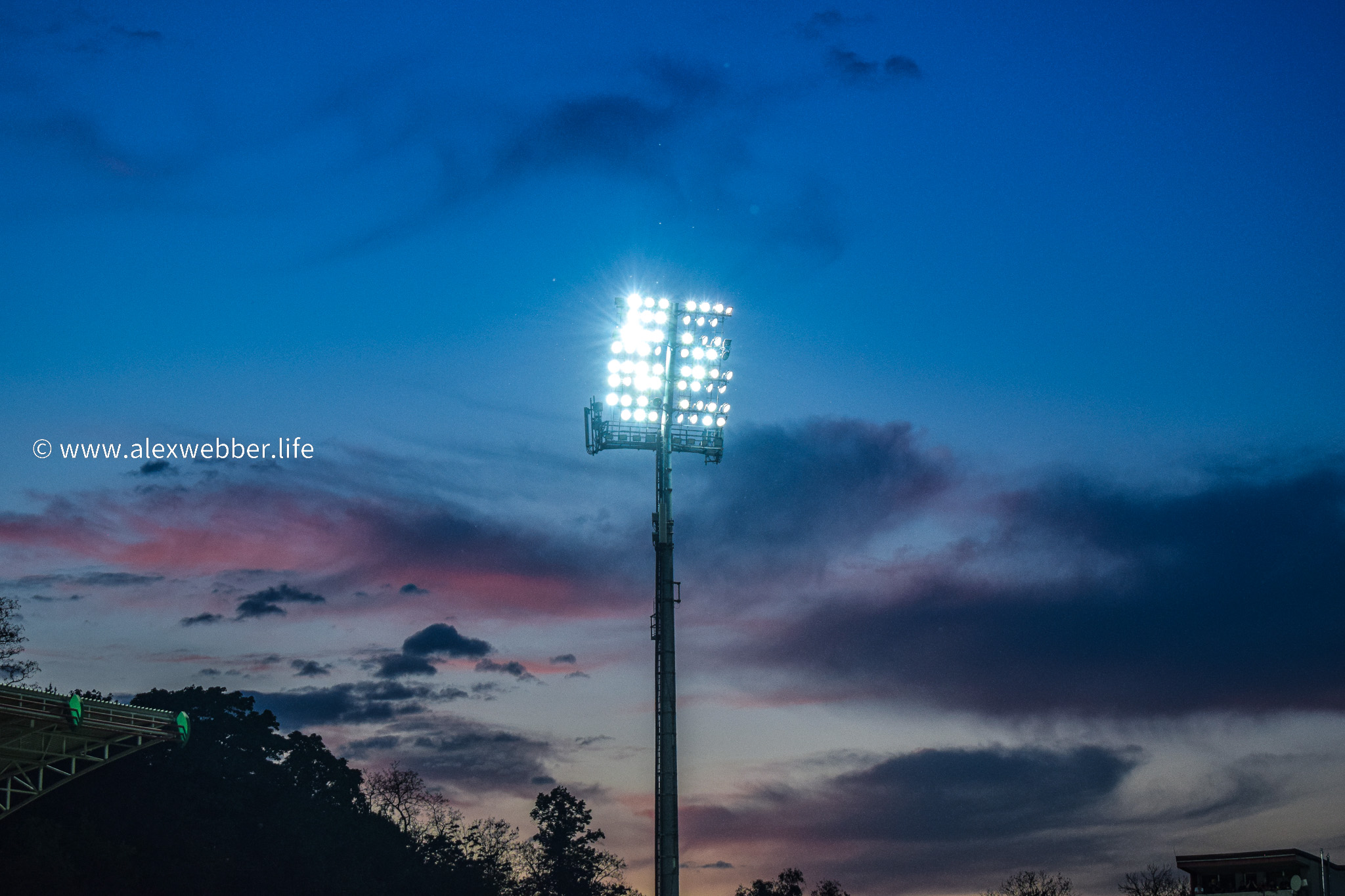
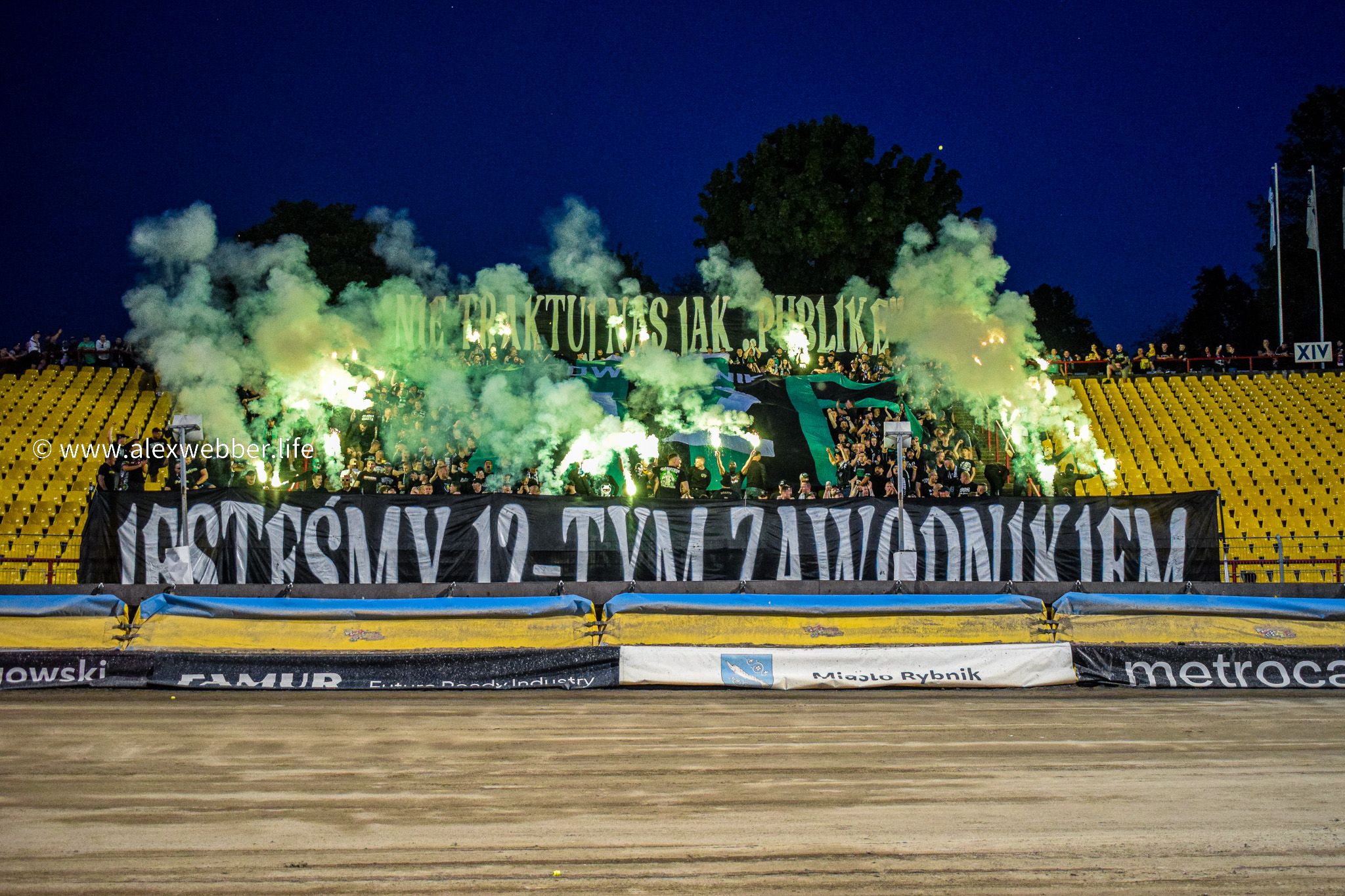
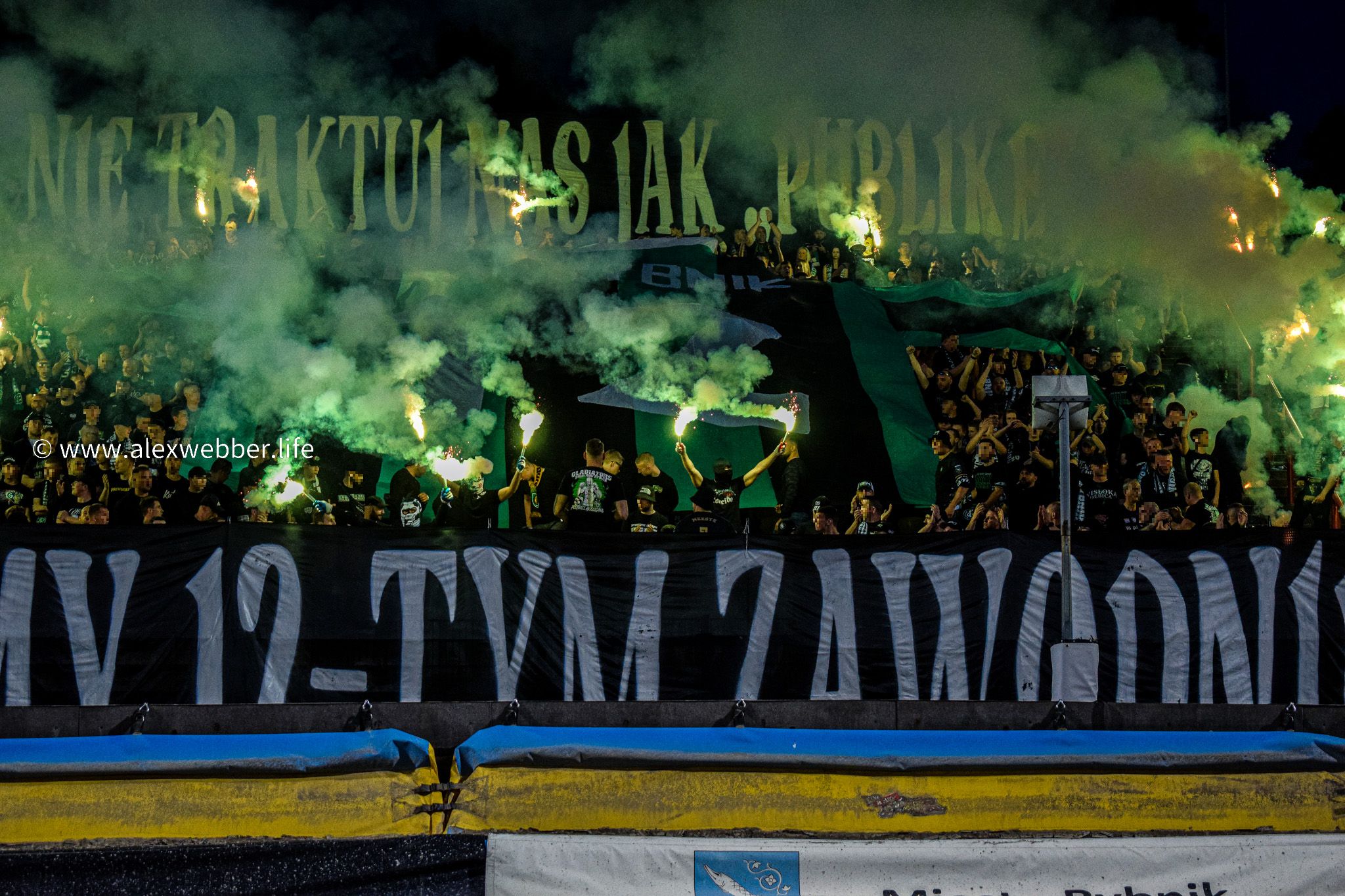

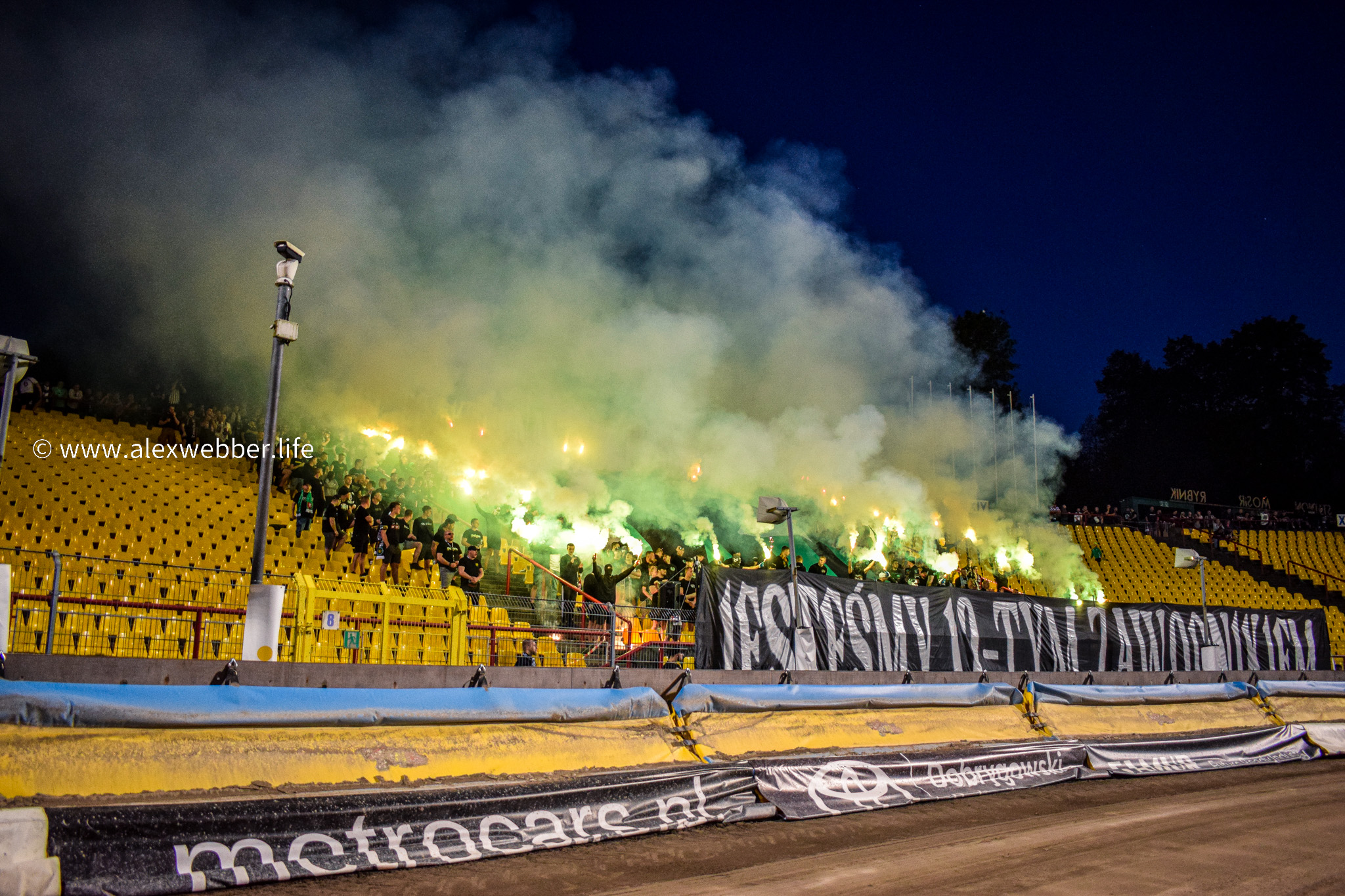
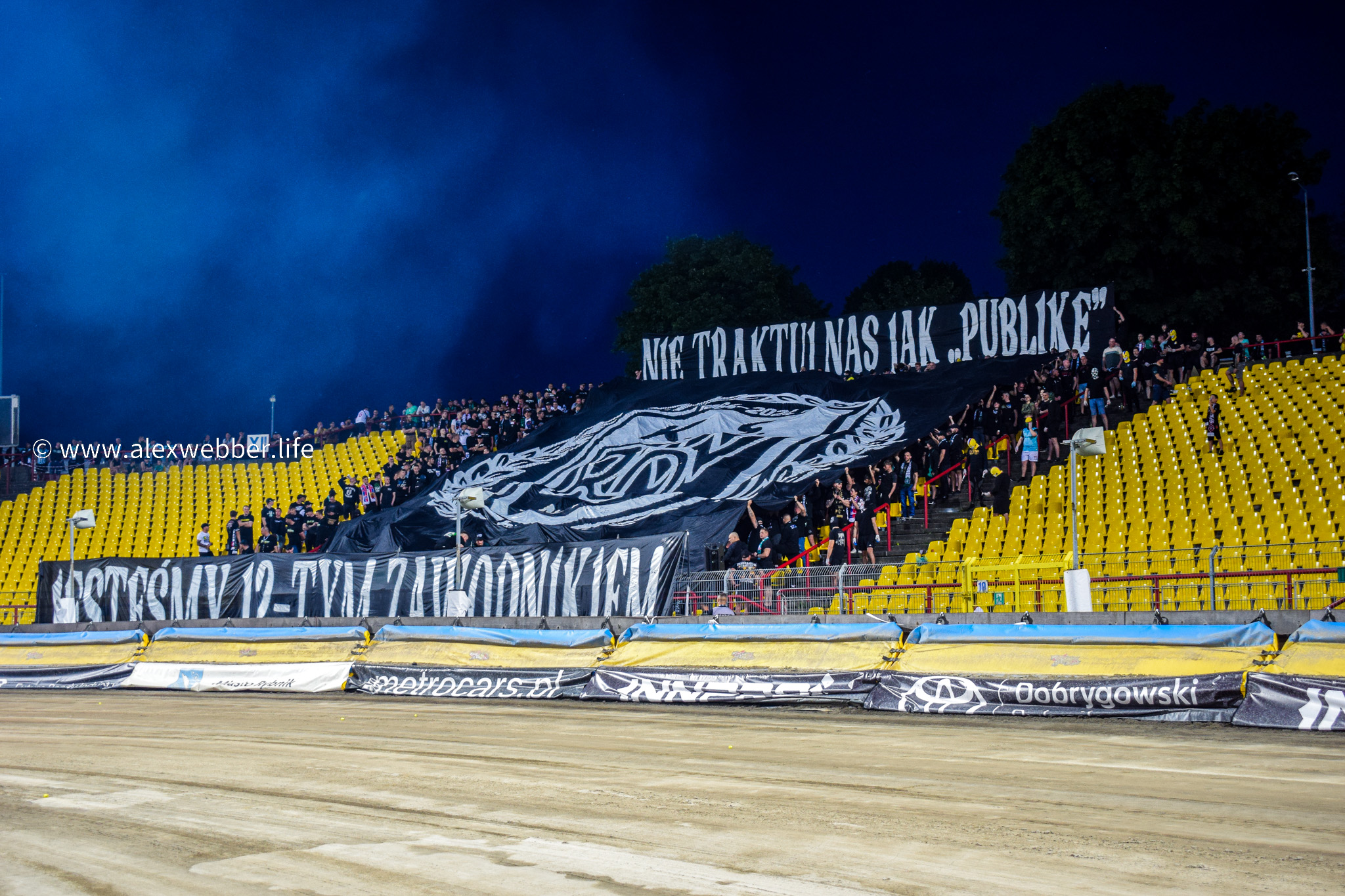
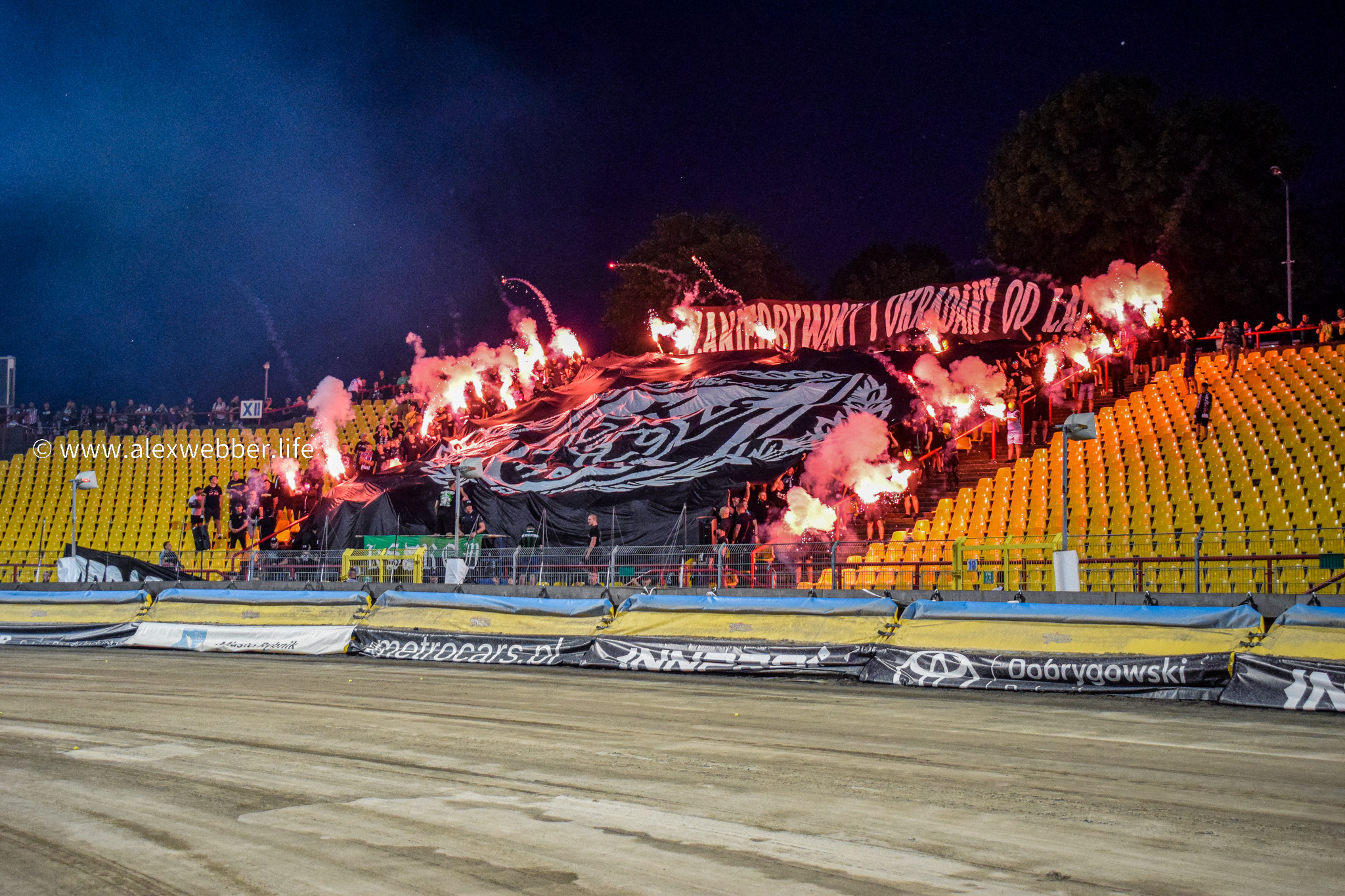
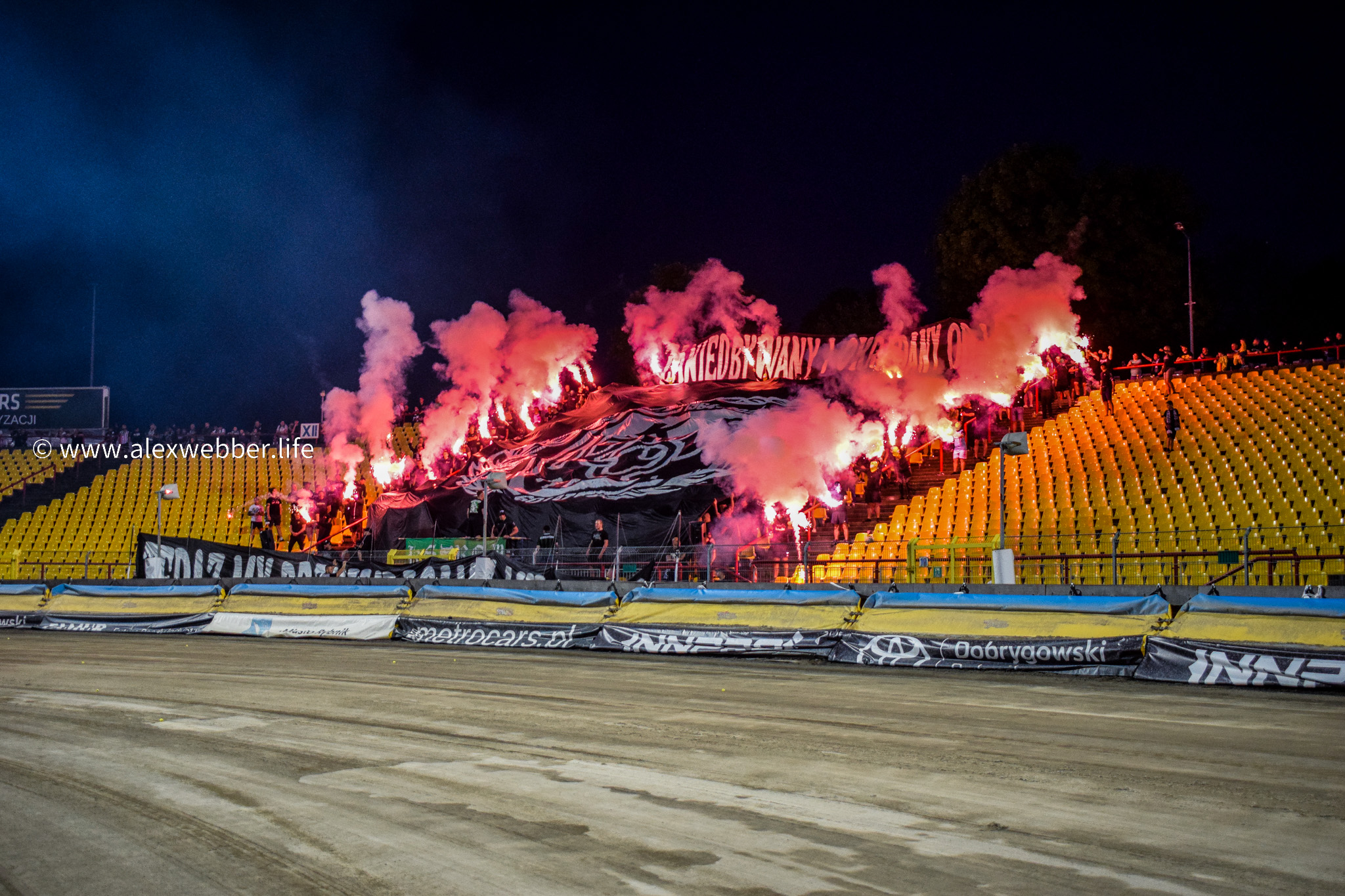
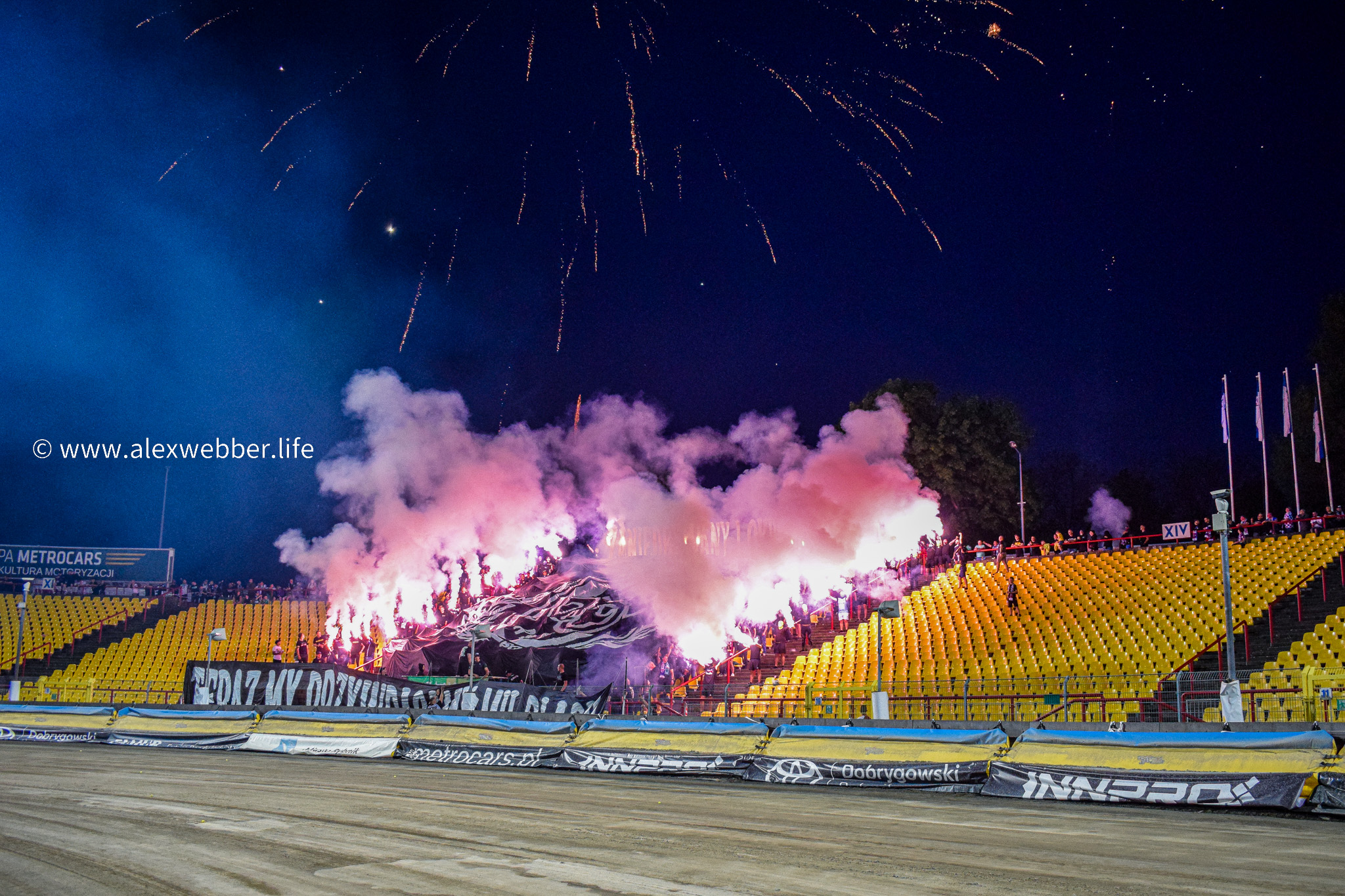
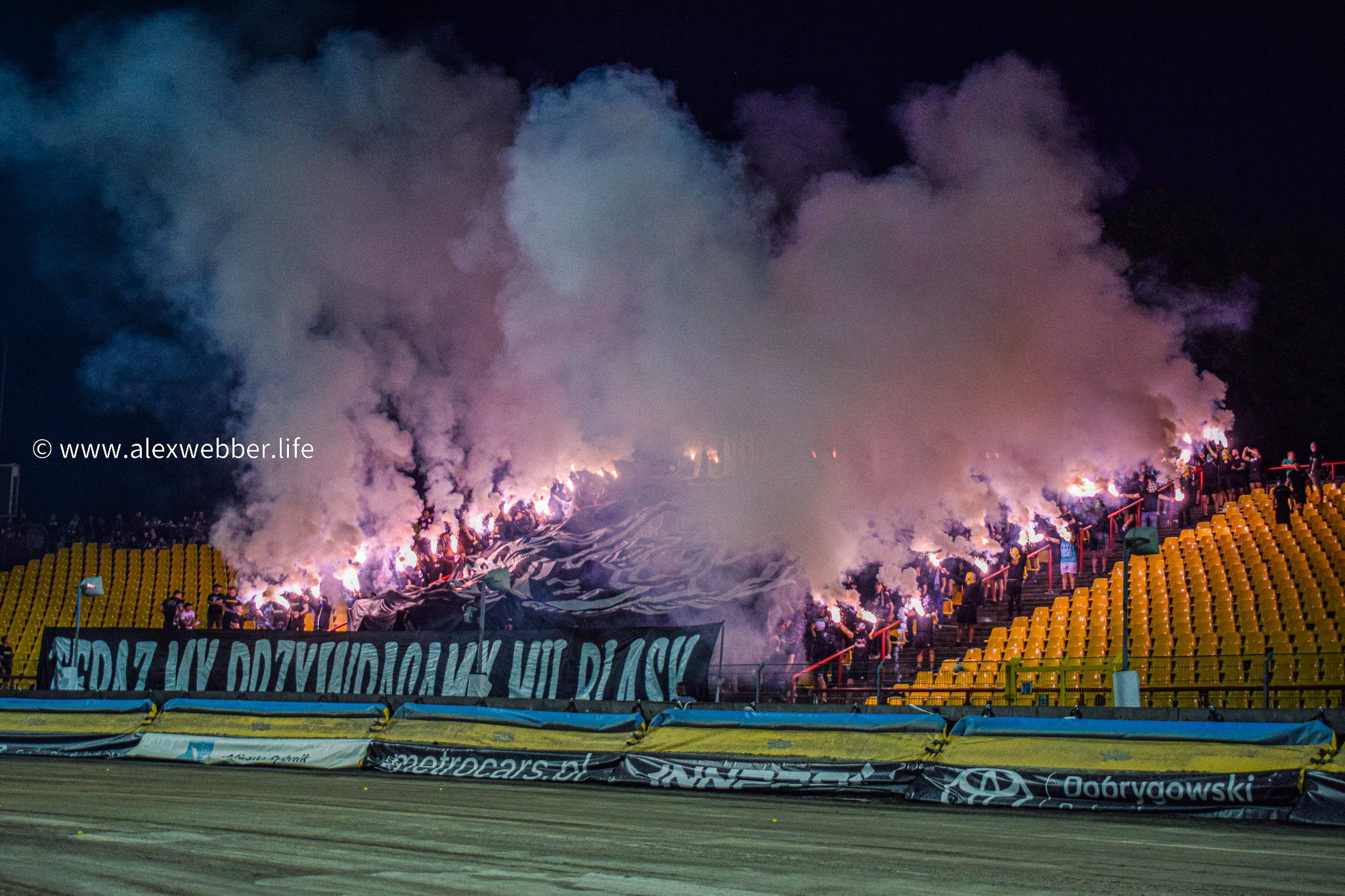
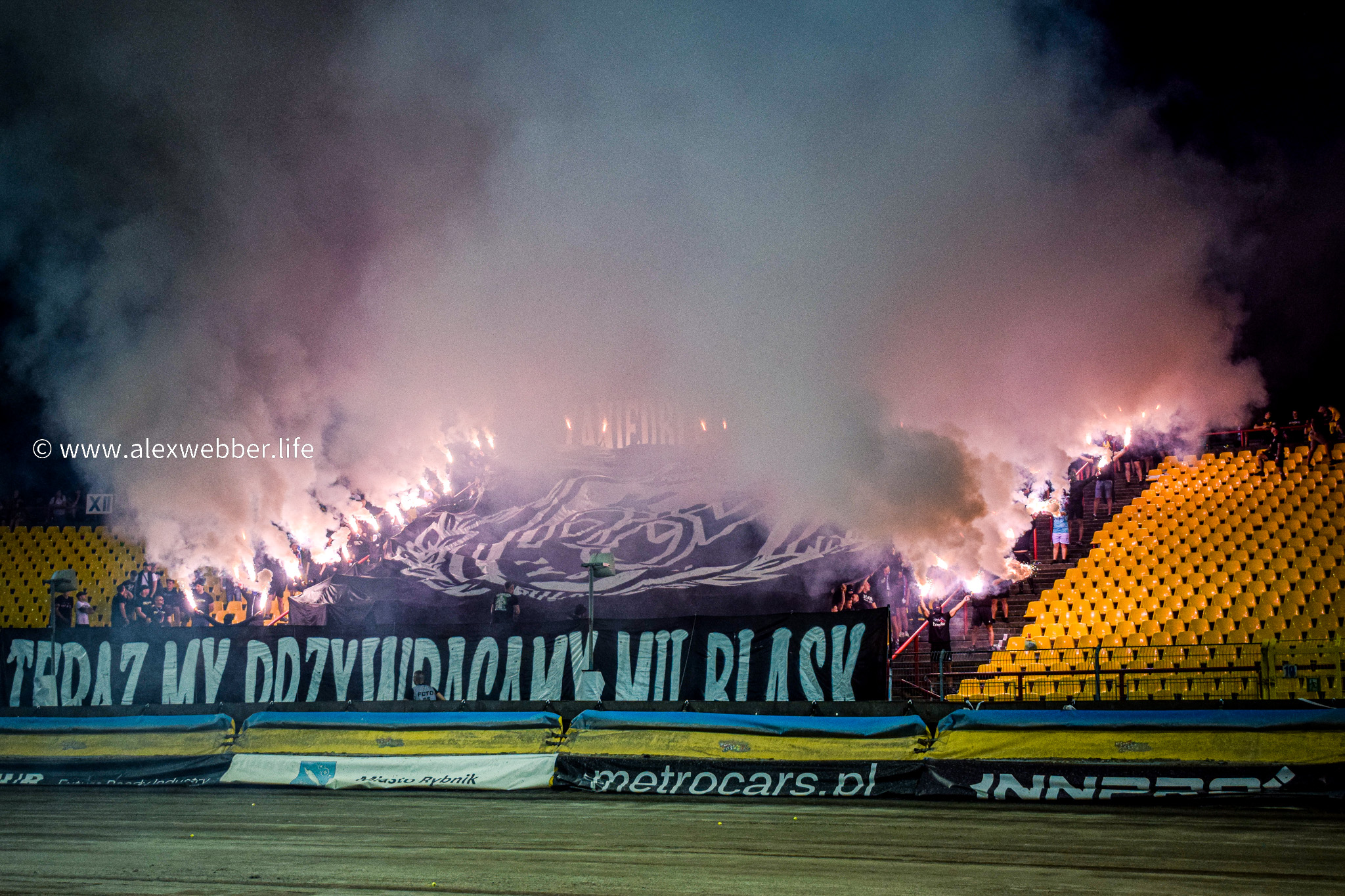
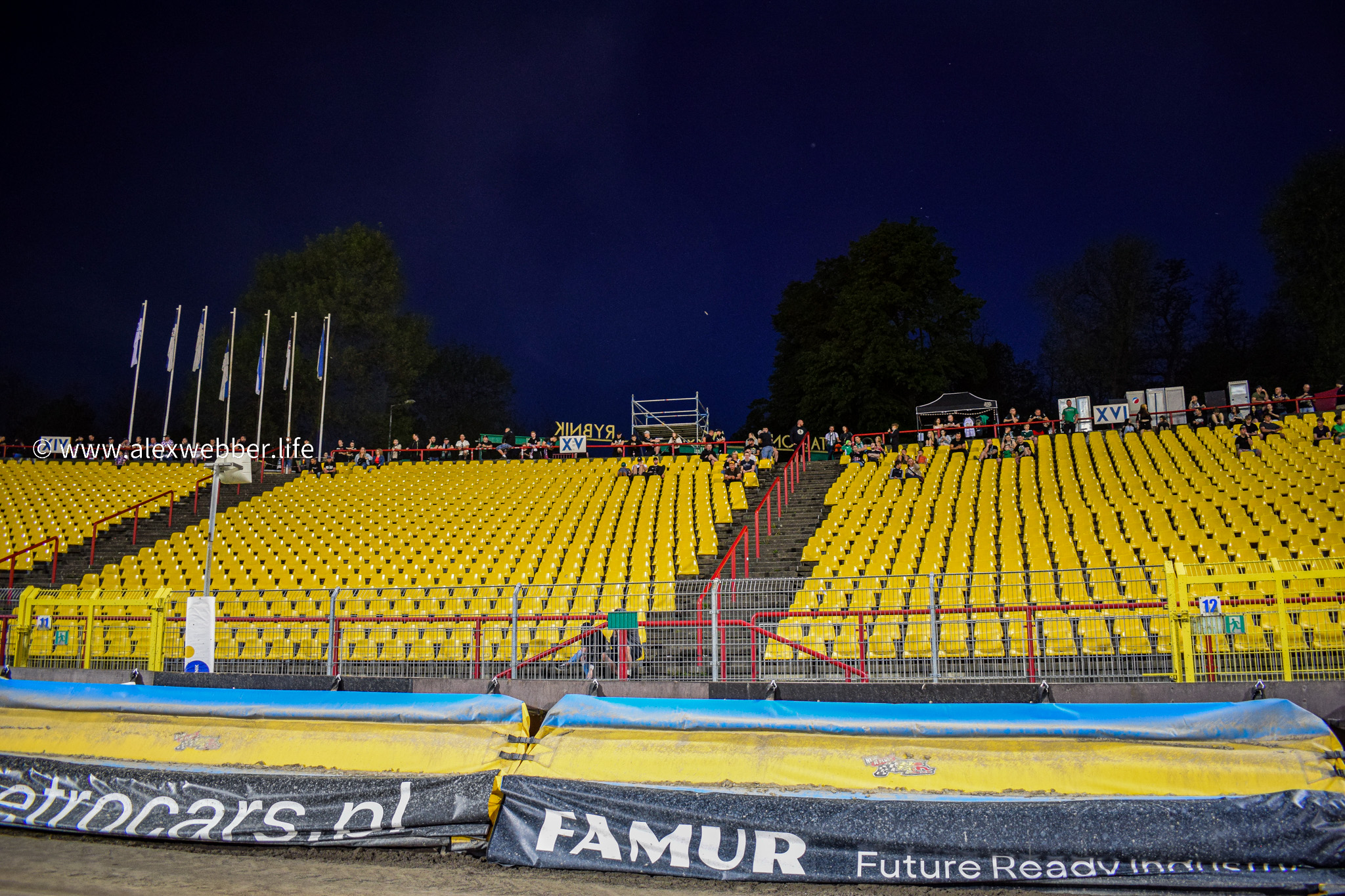
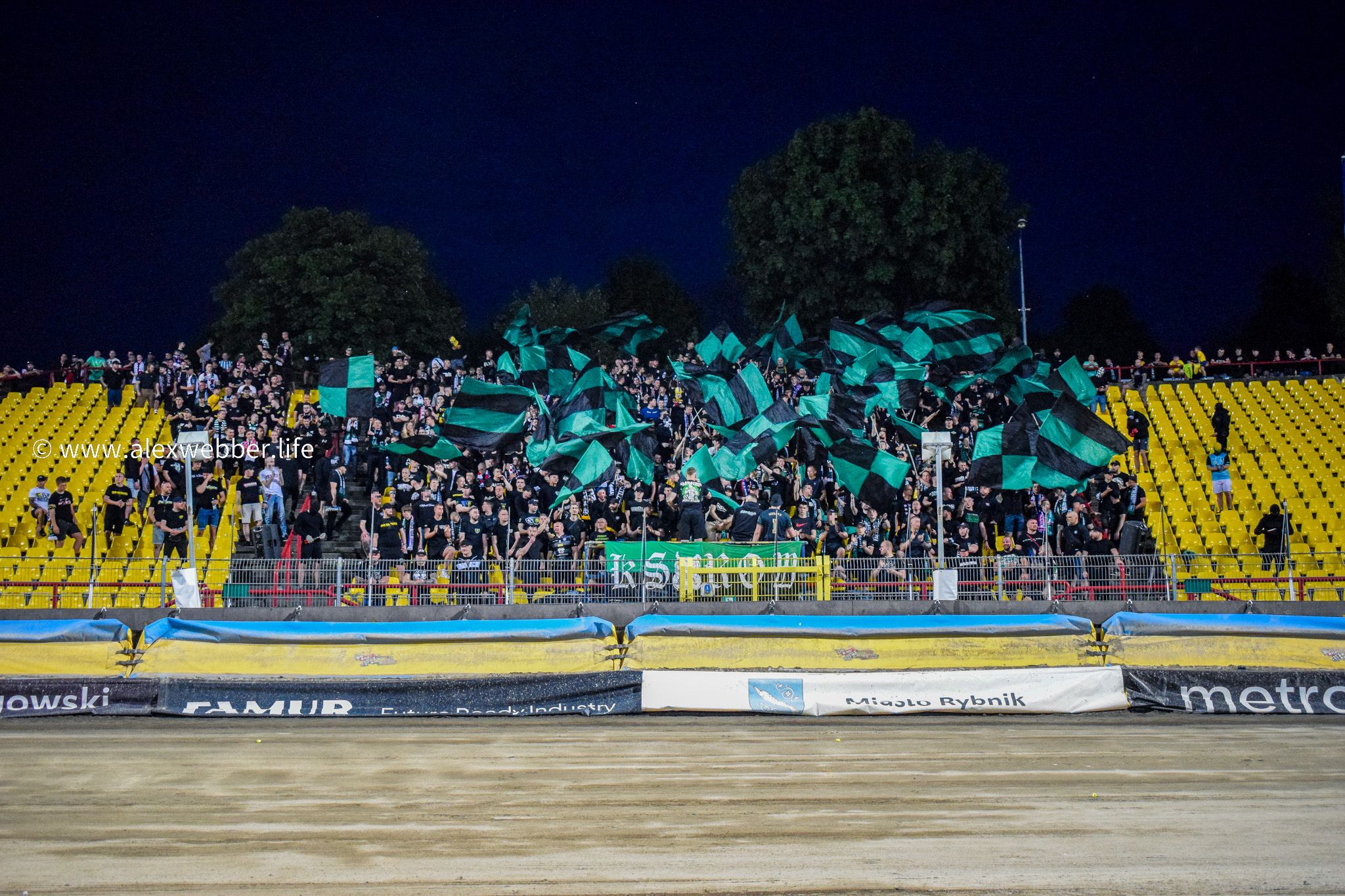



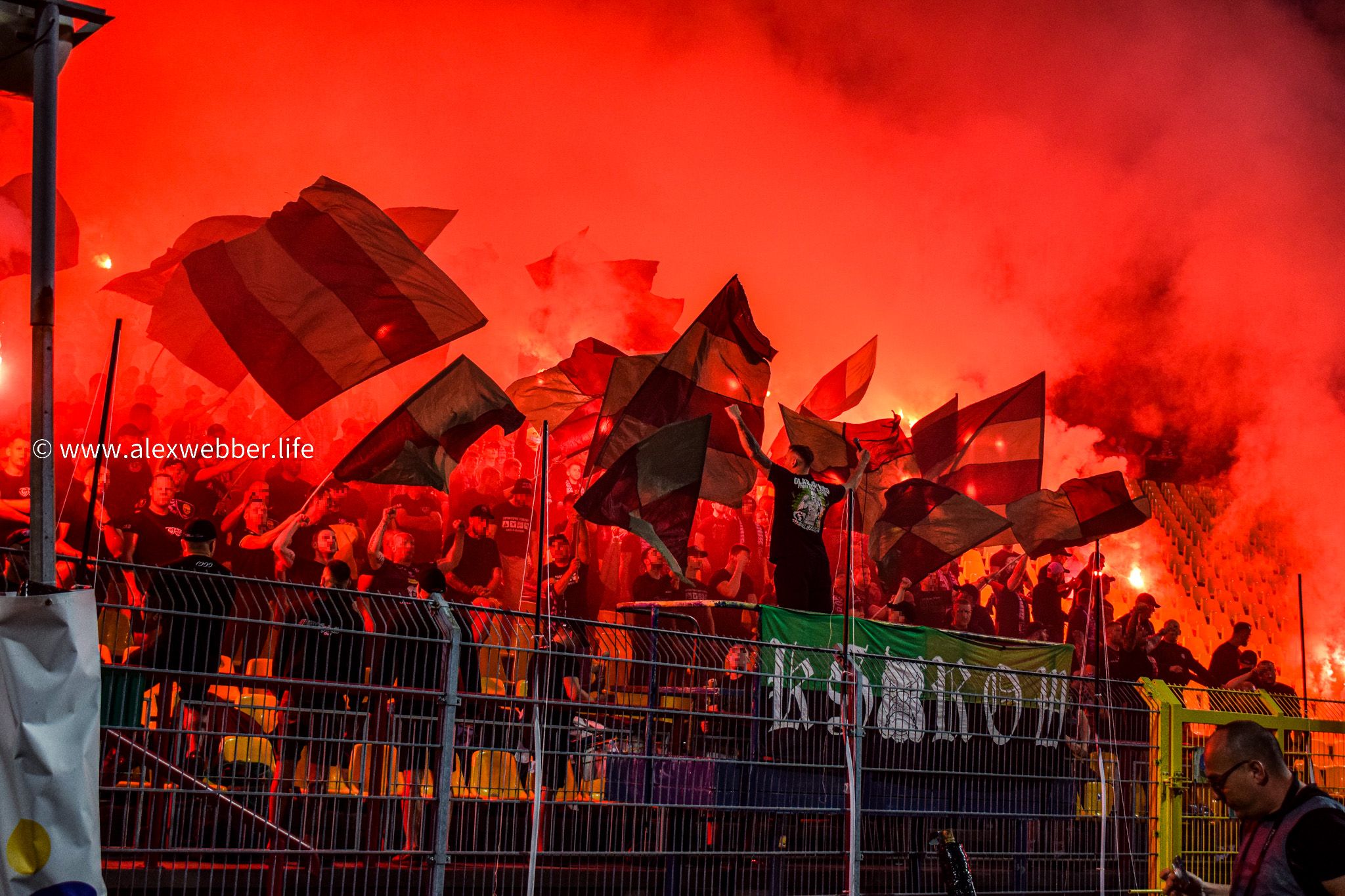
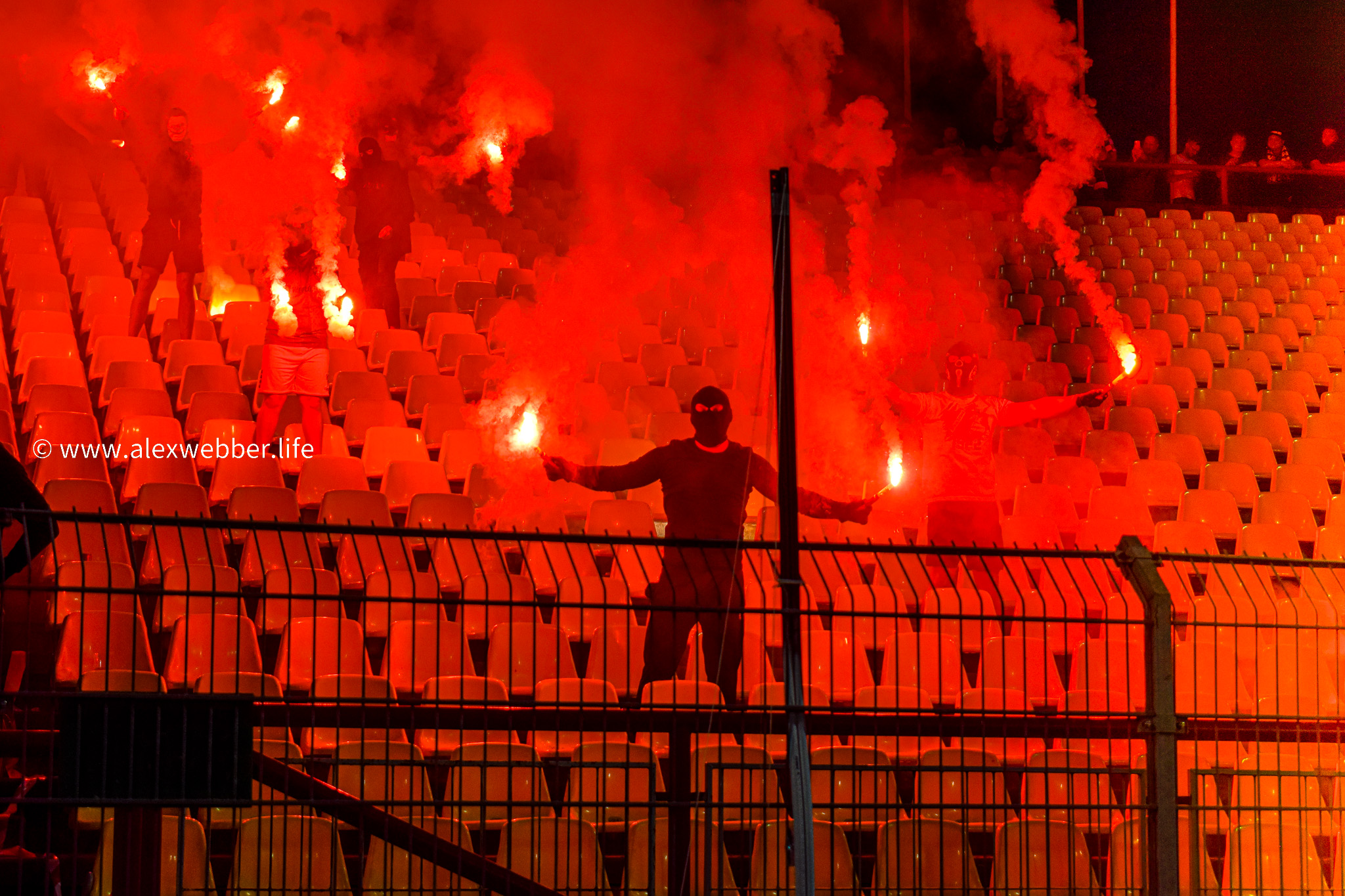
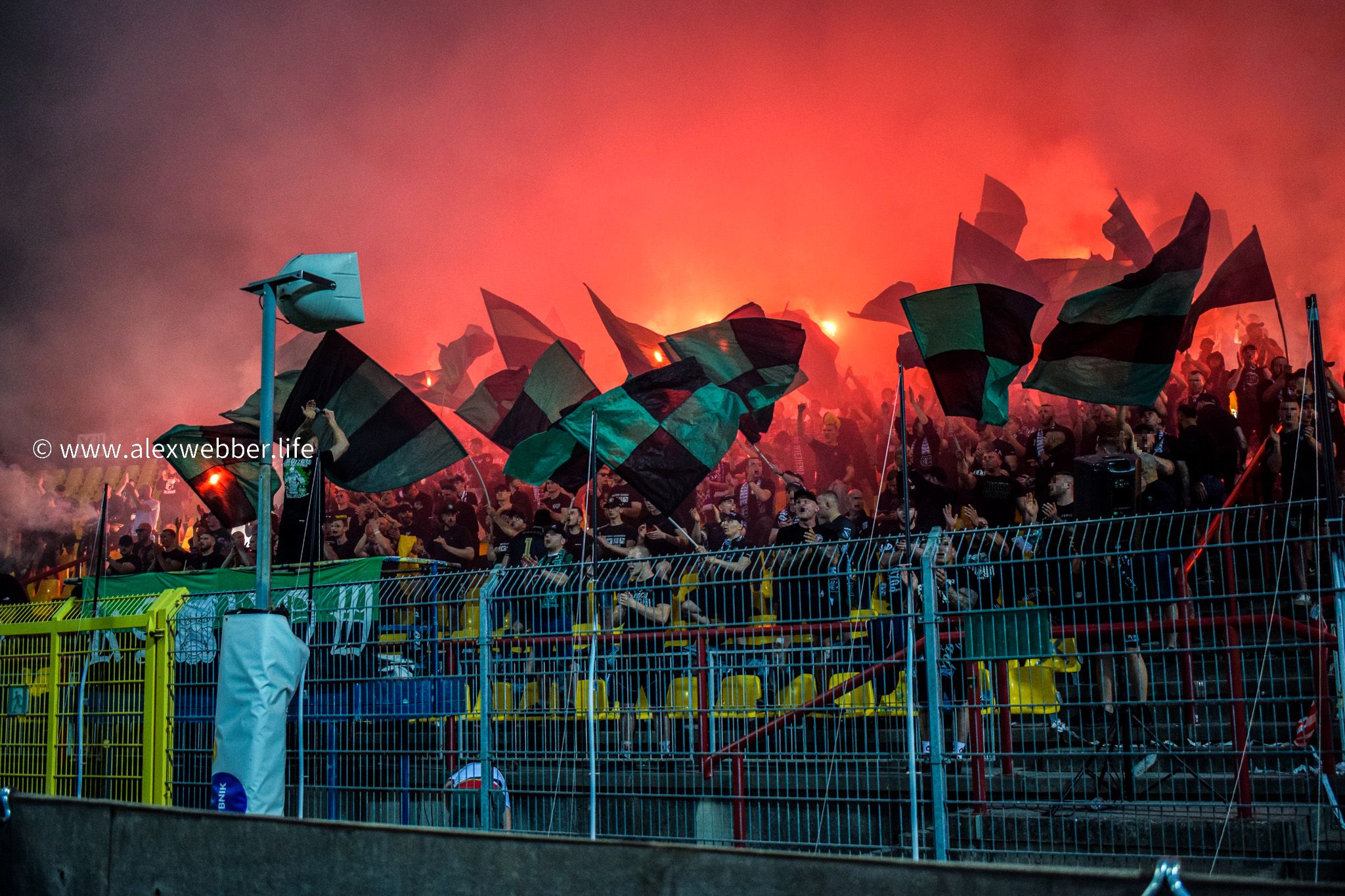

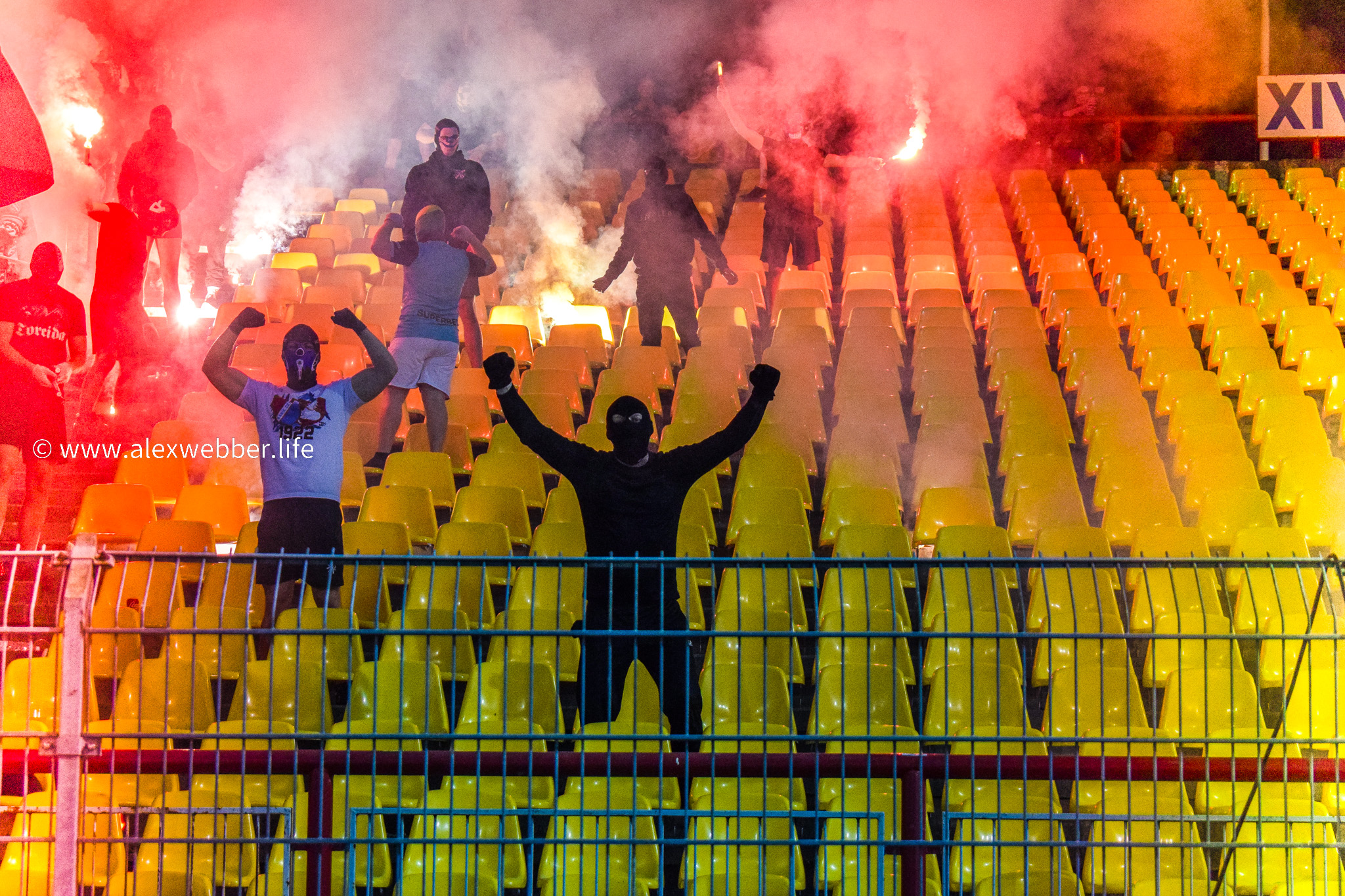

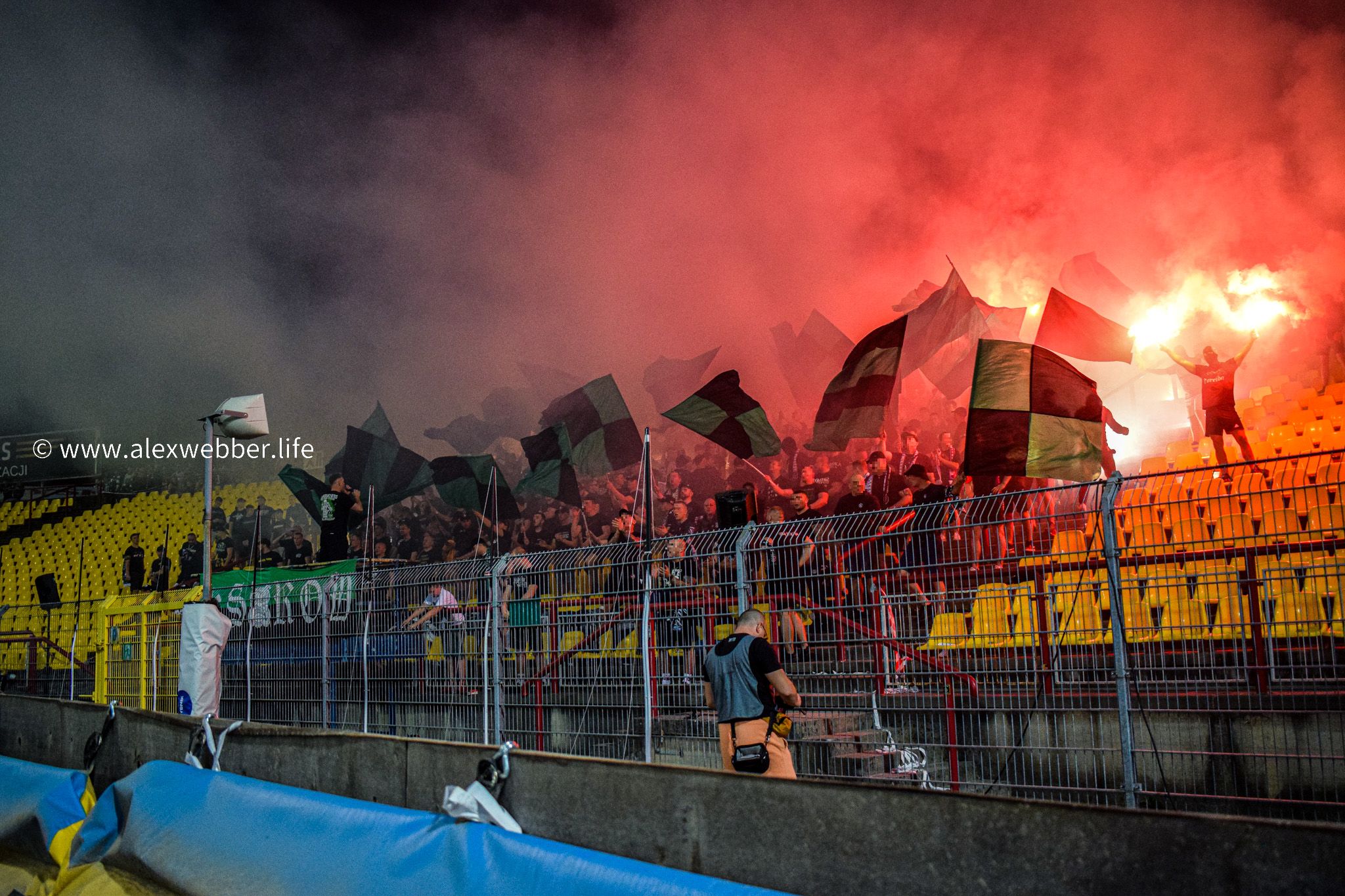

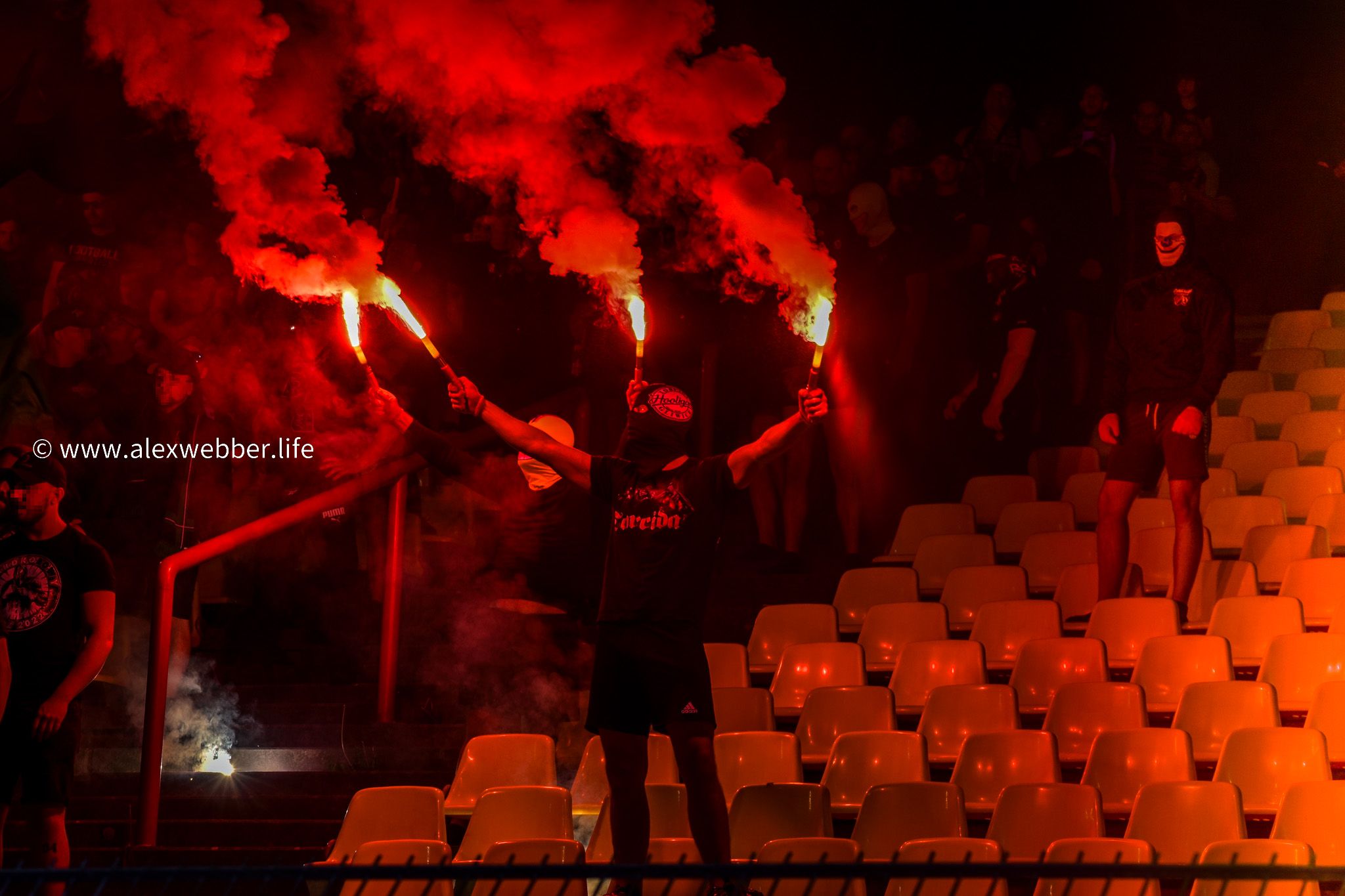

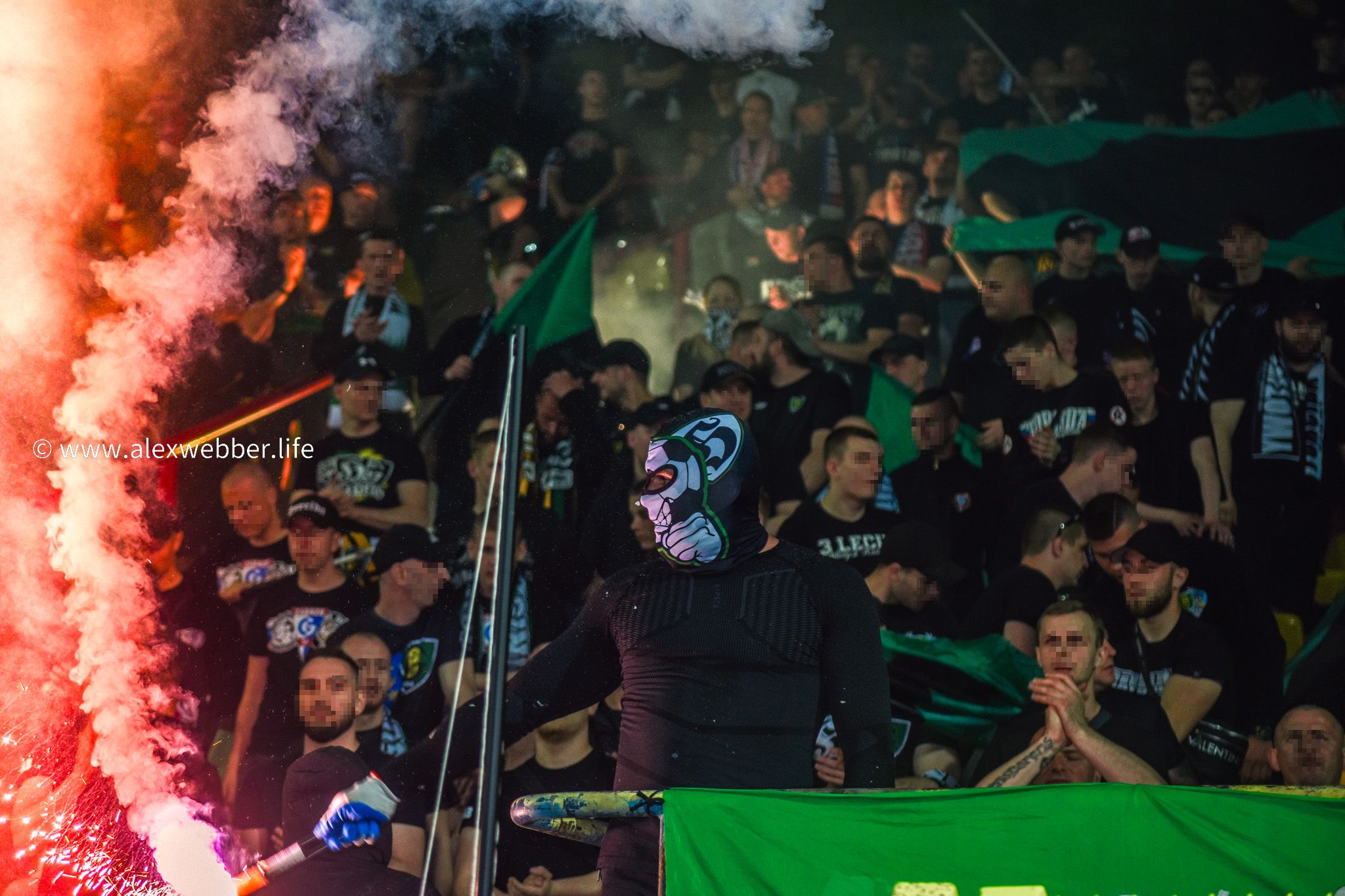




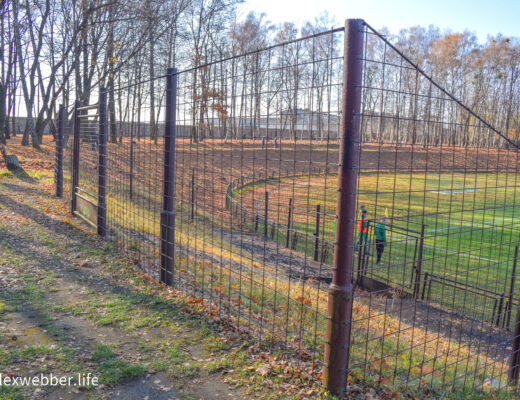
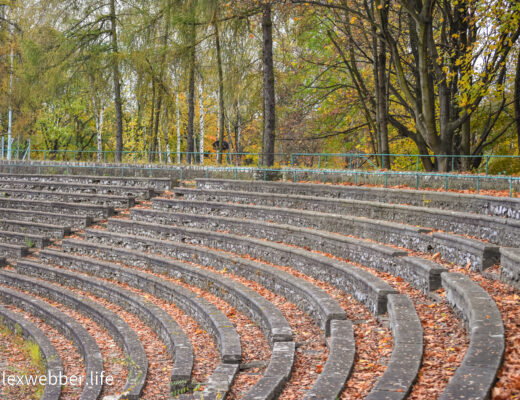
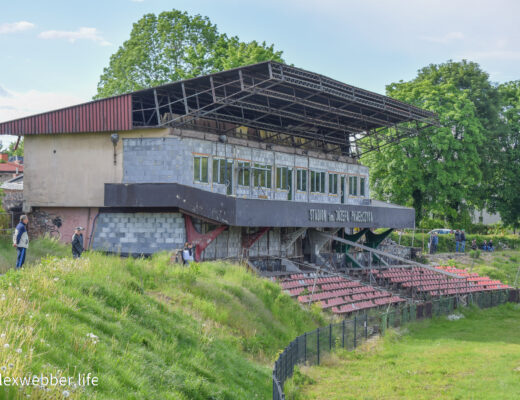

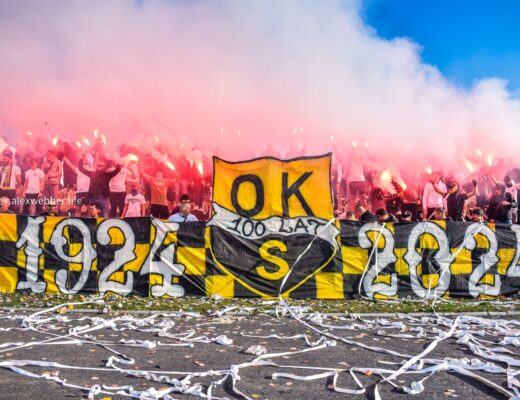
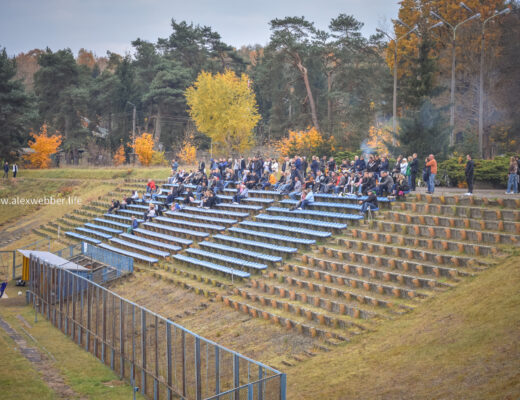
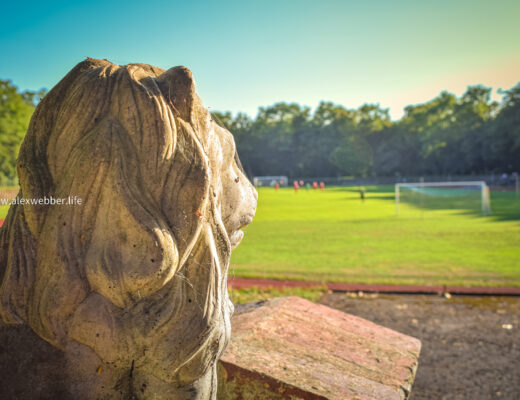
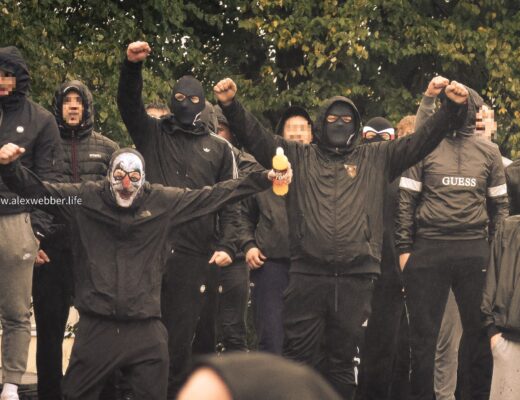
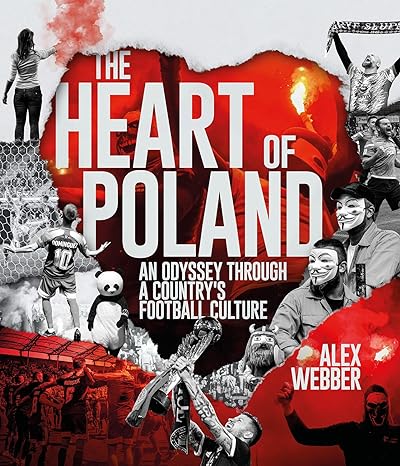
No Comments